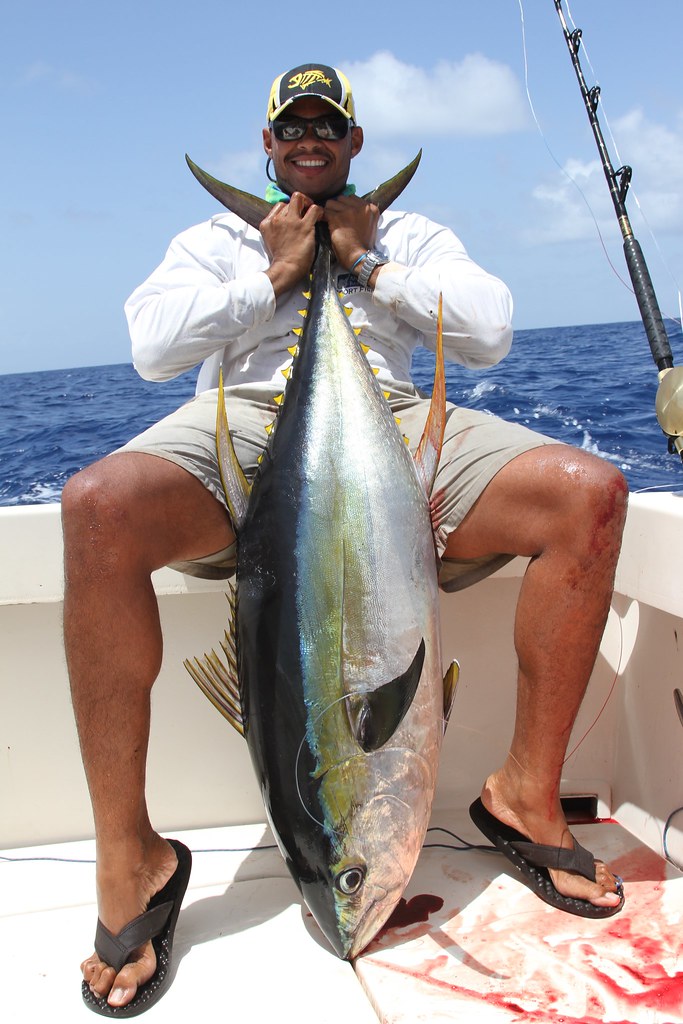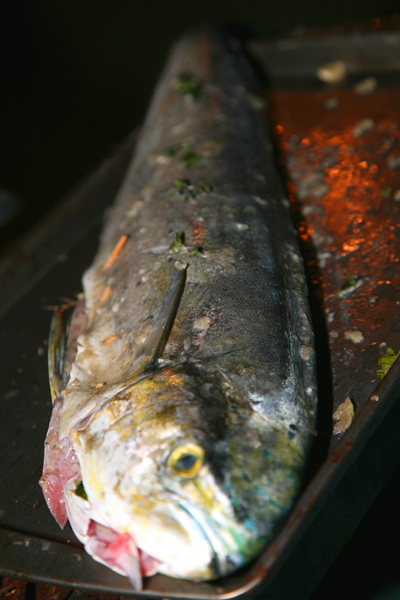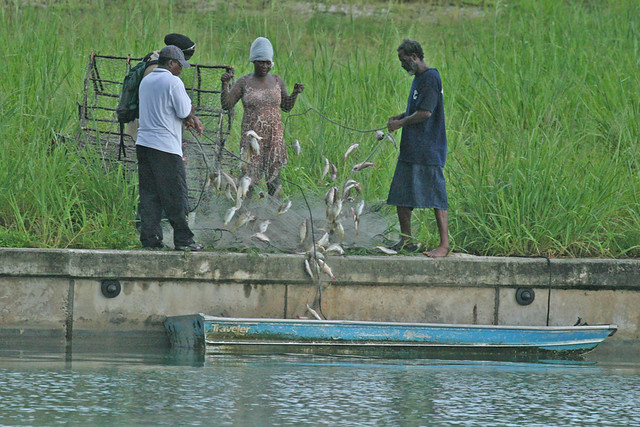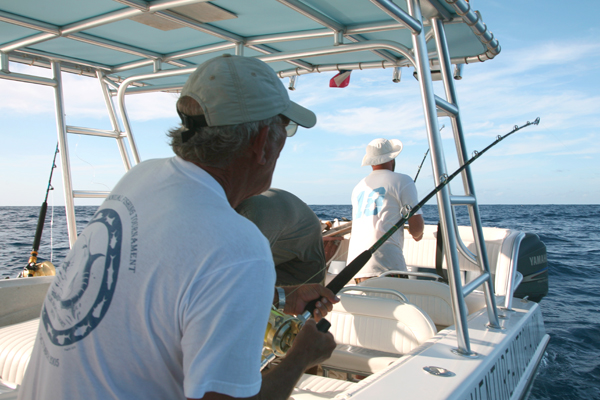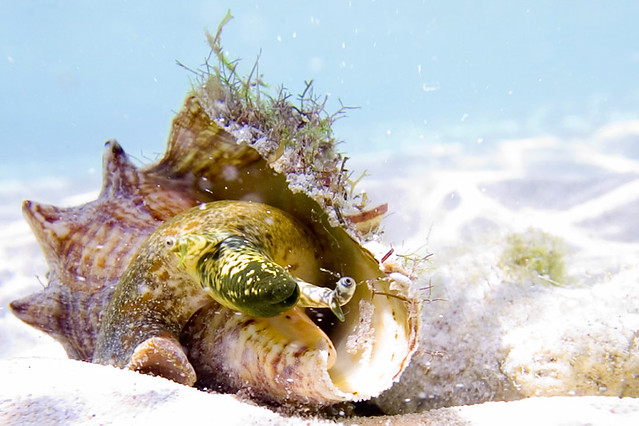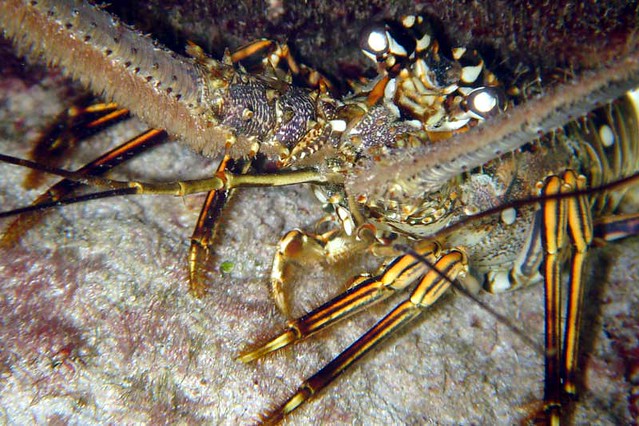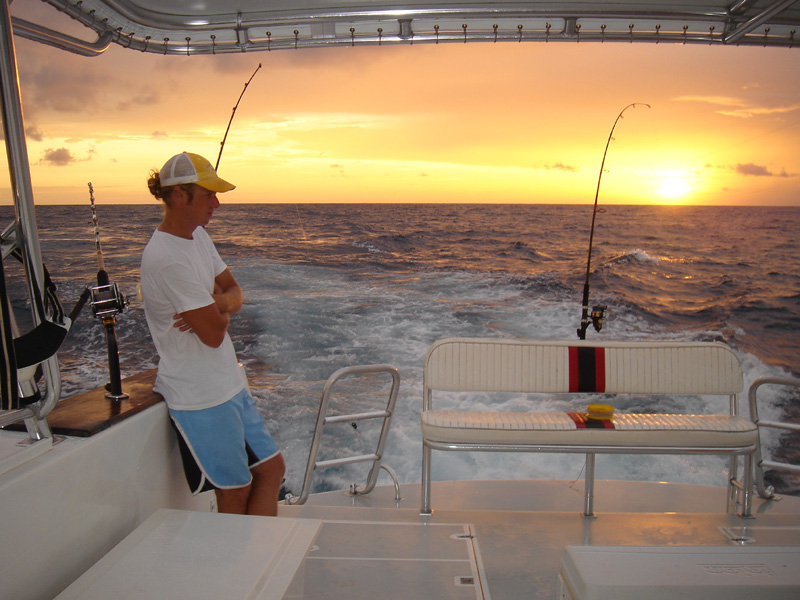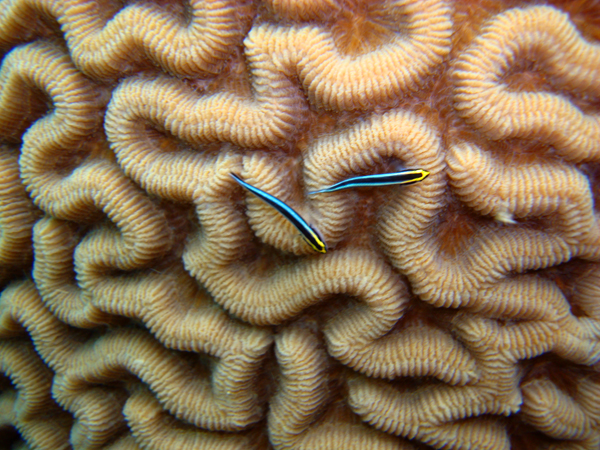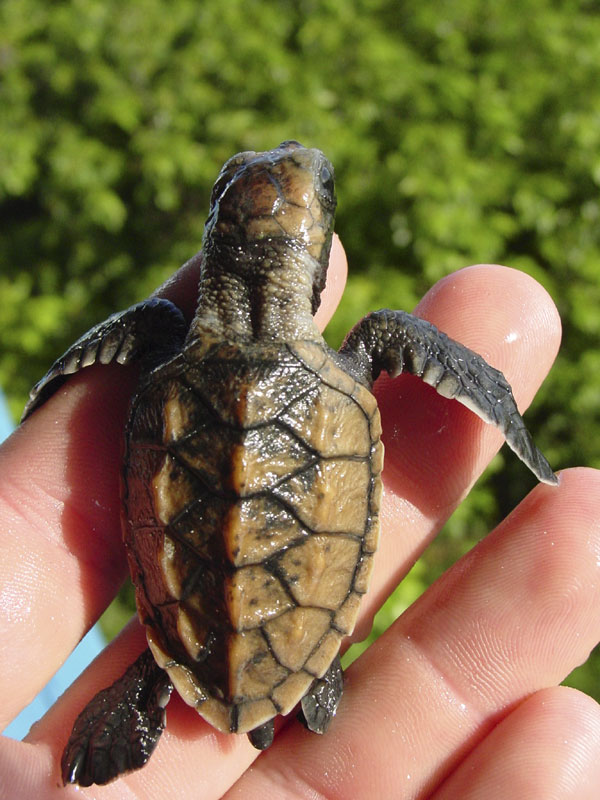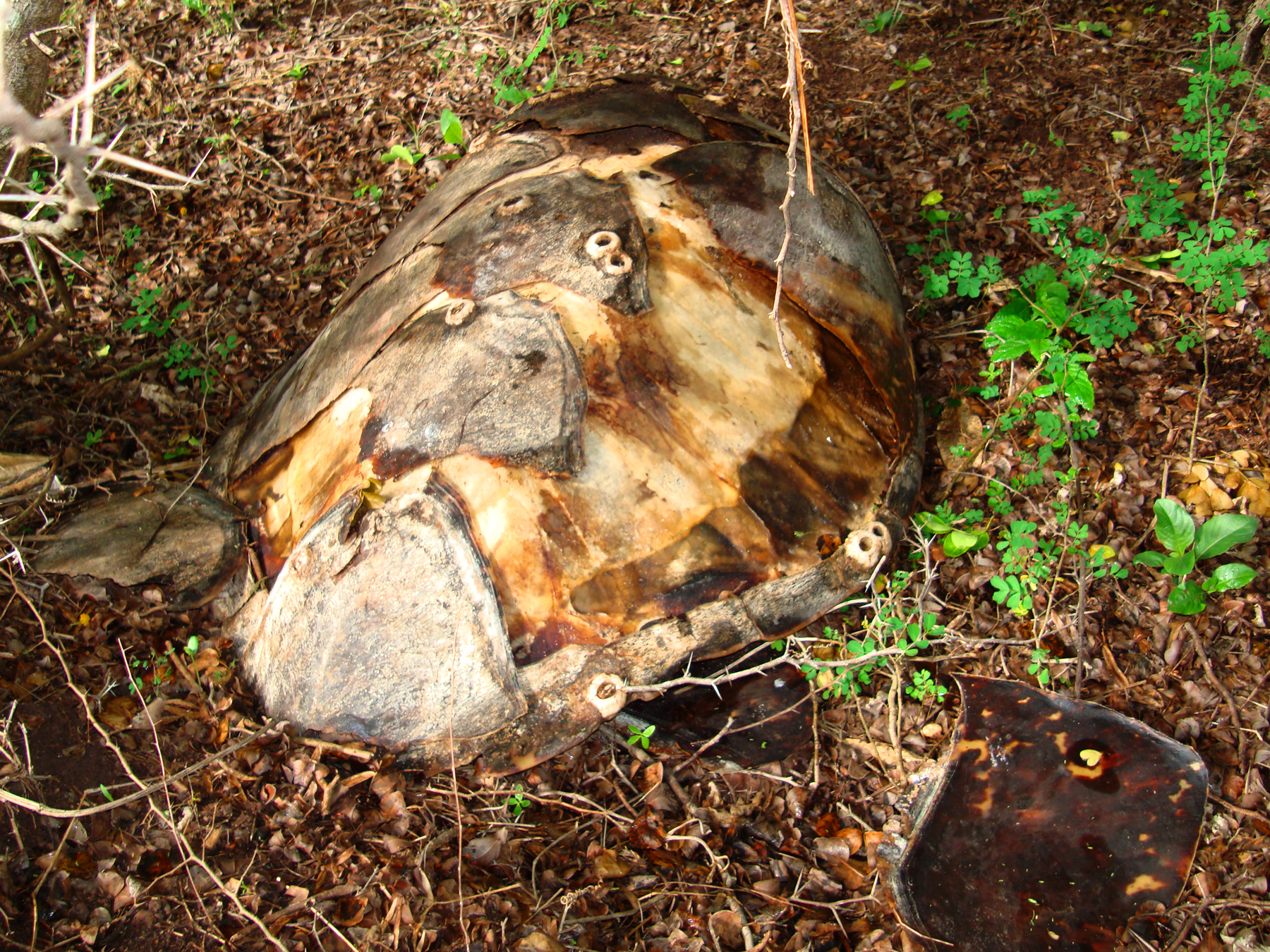This is a blog set up by Eli Fuller (me) to help keep readers informed and to promote our little country to prospective guests. It's also to make sure that new info about our island is passed on quickly and also to receive feedback on this info. Of course most of the things i write about have themes of ecology and usually have quite a bit to do with my company Adventure Antigua. Make comments anytime you want, but check the site above to book your adventure.
Friday, August 26, 2011
Sustainable seafood - a look at eco friendly fish dinners.
This was taken from my column in Enjoy Magazine which comes out here in Antigua every two weeks. There are copies all over the island. ENJOY!
These days choosing what seafood you will order from the menu can have as much to do with your morals as your taste buds, and having good info about what's on offer will help you enjoy your meal that much more. I remember taking Environmental Science as an elective in University back in 1989 and hearing about why certain fish stocks had plummeted. It all had to do with supply and demand as is the case with most things i guess, but the main message was that historically, seafood was only eaten by people who lived close to the sea. Now with modern supply chains, refrigerated storage and other technological advances even people in Allen, South Dakota (1024 miles from the nearest shore) can have fresh seafood whenever they want. The demand outweighs the supply quite often.
There are many different types of seafood that you will find here on the menu in Antigua, some more "eco-friendly" or sustainable than others.
What makes a seafood sustainable? Seafood that is caught in a way that will not jeopardize the survival of the species or the eco system from where it is taken is considered sustainable, but there are other considerations that have to do with the ecological footprint of that seafood. The ecological footprint would partially have to do with whether the seafood was imported, how far it had to be shipped from, and the methods of harvesting. This is very hard to figure out for imported seafood as we don't usually have that information when it arrives in Antigua.
For people living in the USA there are some great guides on sustainable fish and seafood. There has been considerable research done on the status of different fish species and what harvesting methods should be used in order to catch that species sustainably. We here in the Caribbean can use some of this research to help us decide what to eat and what to avoid. The Environmental Defense Fund has a great seafood guide on the internet and there are even similar apps these days for your smart phone.
Mahi Mahi or Dolphin Fish above. Read more about them here.
Although imports such as salmon, US caught shrimp, and squid can be labeled eco friendly, I think that it's best to eat locally caught "pelagic" or open ocean species that reproduce quickly. Such species are Atlantic yellowfin tuna, blackfin tuna, wahoo, Dolphin Fish (a.k.a Mahi Mahi), Rainbow Runner, and some Mackerel species. While most of these fish are available here on the menu much of what you will find in restaurants is imported to meet demand.
If you really want to eat responsibly ask your chef where the fish comes from and ask if they know if the fish were caught by rod and reel. If these species were caught locally on rod and reel then the chances that there was by-catch is almost nil. One of the big problems with eating tuna these days is that most tuna is caught in nets or on long lines.
It's almost impossible to catch fish in nets without killing others species in the nets as "by-catch". Often this by-catch happens to be endangered animals. There is quite a big community of fishermen here in Antigua that catch pelagic fish with rod and reel and some restaurants try to purchase only from these fresh sources.
If you support these eateries then you will be helping the environment too.
It is the opinion of most local marine biologists and environmentalists here in Antigua that shelf and inshore fish are not currently being caught in a sustainable way. These species include all reef fish and could possibly include deep water snapper and grouper.
At the moment lobster and conch also commonly fall into the unsustainable category as there are no closed seasons and poorly monitored and enforced size limits. Their diminishing numbers attest to this.
Setting up well managed Marine Protected Areas (like the NEMMA that I have blogged about) as well as open and closed seasons with carefully managed size limits will help create sustainable fisheries and make some of the species mentioned above "eco friendly", but for now if you want sustainable seafood your best choice would be the pelagic species caught by rod and reel.
(edit: This blog was posted on the Sustain T&T facebook page. Click here) Someone then posted a link to a very good Trinidad and Tobago sustainable seafood paper. Click here for that one.)
Friday, August 19, 2011
Adventure Antigua's facebook page gets edited
Before facebook had "pages" for companies I set up an Adventure Antigua "group" which is where people shared photos comments and videos. Then one day I had a message from facebook saying that groups would be phased out and that if we wanted to have our company on facebook, then we needed to start a "page". We did that and you can get to it by clicking here
It should look something like this:
Anyway, I figured that we would then start to see people using that more than our facebook group which was still up. That happened but very slowly. There were several updates and messages from facebook and I sort of just ignored them. Anyway, yesterday I finally found out a few things about facebook pages. The first terrible thing I found out about their pages is that they can sometimes make the page limited to geographic locations. I don't know why or how but our Adventure Antigua facebook page wasn't being seen all over the world. I fixed that. Then I noticed that many people who I would have expected to be on there were not on there. Reason: Well it seems as though facebook only permits people who have proved to facebook that they are over 13 years old. In your profile your birth date visible to the general public or not must have a proper date of birth including the year which shows that you are over 13 otherwise you won't be able to see facebook "pages". If you are one of the many people on facebook that doesn't have a real date of birth then you are missing out on many "pages". If you would like to see regular photos from our tours, tag yourself if you were in one of them then you better have a date of birth in your profile. It's not my rules but it's the way FB wants things. Thanks for joining or facebook page. Look for regular photos from our tours.
It should look something like this:
Anyway, I figured that we would then start to see people using that more than our facebook group which was still up. That happened but very slowly. There were several updates and messages from facebook and I sort of just ignored them. Anyway, yesterday I finally found out a few things about facebook pages. The first terrible thing I found out about their pages is that they can sometimes make the page limited to geographic locations. I don't know why or how but our Adventure Antigua facebook page wasn't being seen all over the world. I fixed that. Then I noticed that many people who I would have expected to be on there were not on there. Reason: Well it seems as though facebook only permits people who have proved to facebook that they are over 13 years old. In your profile your birth date visible to the general public or not must have a proper date of birth including the year which shows that you are over 13 otherwise you won't be able to see facebook "pages". If you are one of the many people on facebook that doesn't have a real date of birth then you are missing out on many "pages". If you would like to see regular photos from our tours, tag yourself if you were in one of them then you better have a date of birth in your profile. It's not my rules but it's the way FB wants things. Thanks for joining or facebook page. Look for regular photos from our tours.
Thursday, August 18, 2011
Good info on hurricane season and Antigua
Writen for Antigua's Enjoy magazine:
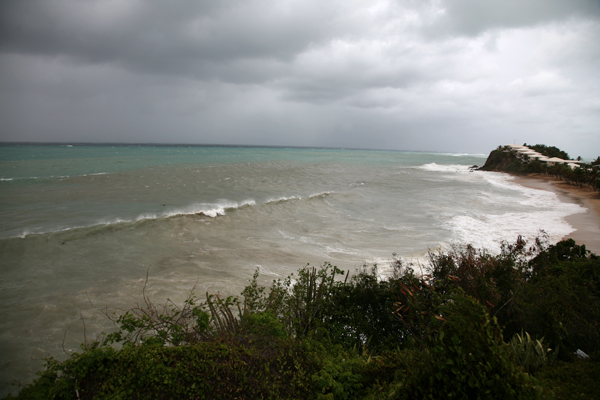
Few things create as much emotion and nervous tension during the summer months as the massive storms we call hurricanes. The word originated from either the ancient Mayan storm god, "Hurakan", or from the Carib word "huracn" meaning god of evil. Either way this word has been scaring people for possibly thousands of years. In recent times science has given us a better understanding of how they form and most importantly how to forecast their strength and track as they come across from Africa. "Hurricane Season" is between June and November with the middle of August to the Middle of September being most active.

A hurricane is a low pressure storm with winds of above 74 mph close to the low pressure center. Hurricanes are classed in categories from 1 to 5 with a cat 1 storm having sustained winds of above 74 mph and a cat 5 having sustained winds of above 155 mph. There are so many variables coming together which scientists are still leaning about that create the necessary conditions for a hurricane to form. All summer long small rain storms make the journey from the West Coast of Africa traveling due west across to the Caribbean.They can give us the occasional rainy day, but for the most part the summer has lovely weather. These "tropical waves" pass through about once a week, and some bring little or no rain at all with just a tiny surge in trade winds. Some have a low enough pressure and strong enough winds and associated rain storms or squalls that they become upgraded to "tropical depressions". Tropical Depressions have winds between 25 and 38 mph. With the right conditions they can strengthen into a "Tropical Storm" and this named system is usually a tighter group of squalls and thunderstorms that are spinning. Tropical Storms must have a sustained wind speed of above 39 mph near the center. Again if conditions are right they can strengthen into a Hurricane. Remember that this would mean there's sustained winds of above 74 mph.
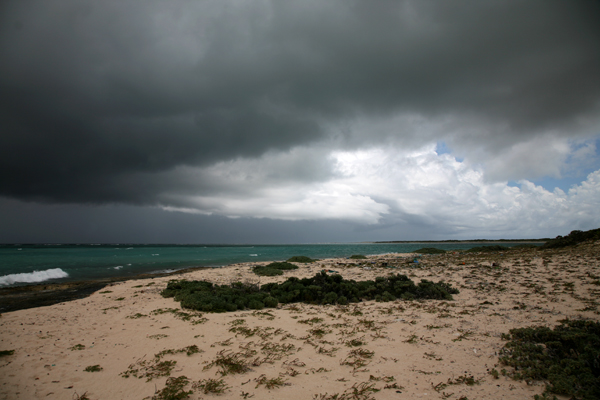
I keep mentioning that ideal conditions are needed and while some are extremely complex, others are not so technical. Almost all of these storms form over the sea, and the sea surface temperature must be above 80 degrees. These warm waters mean there is enough water being evaporated into the atmosphere that thunderstorms are kept alive with the associated energy. Another factor that needed for a storm to form or remain powerful is a light jet stream. Strong jet stream or upper level winds mean the associated wind shear will attack the tops of the thunderstorms breaking them apart. When the jet stream isn't strong and the water temperatures are high, the weather people start paying attention. There are many more variables that need to line up in order for a simple Tropical Wave to develop on its way along the chain towards a hurricane, and because of this the Atlantic only sees about 6 hurricanes a year.
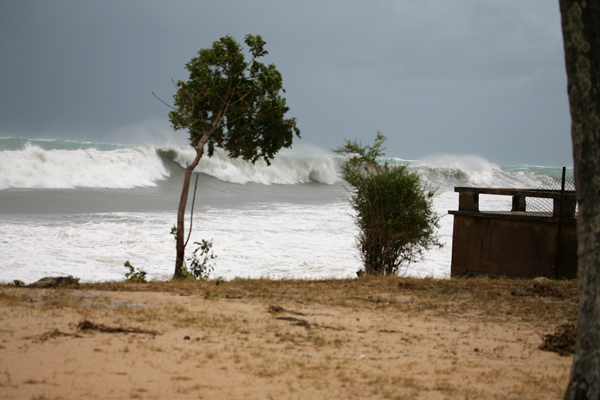
Six sounds bad enough but remember that many hurricanes start and finish in the Atlantic without ever making landfall. Several do make landfall but hurricane force winds usually don't go further than 50 miles from the center which means that if a hurricane goes over Dominica 100 miles to our South it may not give us any hurricane conditions at all. In fact the chances of being hit are so low that records show that in the past 60 years Antigua has had only 6 direct hits. One other thing to remember is that a hurricane is usually averaging about 12mph as it tracks north west in the vicinity of the Caribbean which means that even if it does hit an island the conditions are only felt for a day or less on average. Six days of hurricane conditions in 60 years are not that bad, but you never know which year will be the one when that storm comes your way. The rule of thumb is that during hurricane season you must prepare for the worst and hope for the best. For reports and forecasts from people on the ground here in Antigua visit www.stormcarib.com or search for "antigua weather" on facebook.
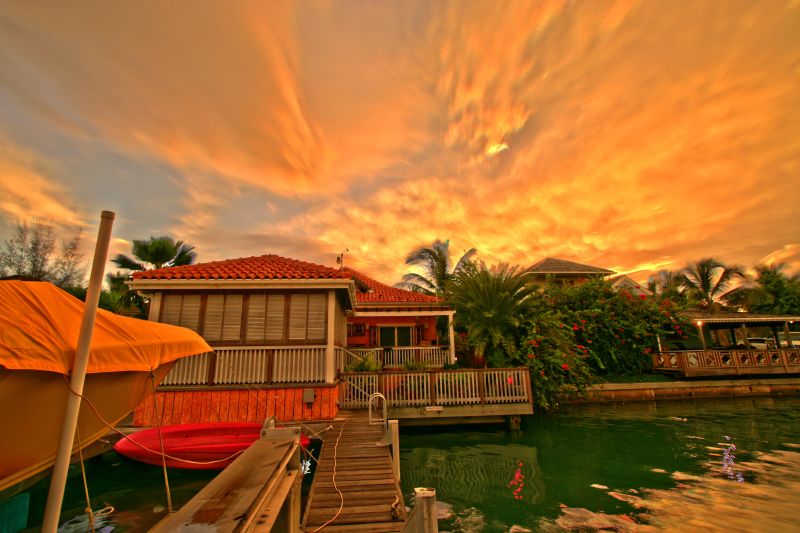

Few things create as much emotion and nervous tension during the summer months as the massive storms we call hurricanes. The word originated from either the ancient Mayan storm god, "Hurakan", or from the Carib word "huracn" meaning god of evil. Either way this word has been scaring people for possibly thousands of years. In recent times science has given us a better understanding of how they form and most importantly how to forecast their strength and track as they come across from Africa. "Hurricane Season" is between June and November with the middle of August to the Middle of September being most active.

A hurricane is a low pressure storm with winds of above 74 mph close to the low pressure center. Hurricanes are classed in categories from 1 to 5 with a cat 1 storm having sustained winds of above 74 mph and a cat 5 having sustained winds of above 155 mph. There are so many variables coming together which scientists are still leaning about that create the necessary conditions for a hurricane to form. All summer long small rain storms make the journey from the West Coast of Africa traveling due west across to the Caribbean.They can give us the occasional rainy day, but for the most part the summer has lovely weather. These "tropical waves" pass through about once a week, and some bring little or no rain at all with just a tiny surge in trade winds. Some have a low enough pressure and strong enough winds and associated rain storms or squalls that they become upgraded to "tropical depressions". Tropical Depressions have winds between 25 and 38 mph. With the right conditions they can strengthen into a "Tropical Storm" and this named system is usually a tighter group of squalls and thunderstorms that are spinning. Tropical Storms must have a sustained wind speed of above 39 mph near the center. Again if conditions are right they can strengthen into a Hurricane. Remember that this would mean there's sustained winds of above 74 mph.

I keep mentioning that ideal conditions are needed and while some are extremely complex, others are not so technical. Almost all of these storms form over the sea, and the sea surface temperature must be above 80 degrees. These warm waters mean there is enough water being evaporated into the atmosphere that thunderstorms are kept alive with the associated energy. Another factor that needed for a storm to form or remain powerful is a light jet stream. Strong jet stream or upper level winds mean the associated wind shear will attack the tops of the thunderstorms breaking them apart. When the jet stream isn't strong and the water temperatures are high, the weather people start paying attention. There are many more variables that need to line up in order for a simple Tropical Wave to develop on its way along the chain towards a hurricane, and because of this the Atlantic only sees about 6 hurricanes a year.

Six sounds bad enough but remember that many hurricanes start and finish in the Atlantic without ever making landfall. Several do make landfall but hurricane force winds usually don't go further than 50 miles from the center which means that if a hurricane goes over Dominica 100 miles to our South it may not give us any hurricane conditions at all. In fact the chances of being hit are so low that records show that in the past 60 years Antigua has had only 6 direct hits. One other thing to remember is that a hurricane is usually averaging about 12mph as it tracks north west in the vicinity of the Caribbean which means that even if it does hit an island the conditions are only felt for a day or less on average. Six days of hurricane conditions in 60 years are not that bad, but you never know which year will be the one when that storm comes your way. The rule of thumb is that during hurricane season you must prepare for the worst and hope for the best. For reports and forecasts from people on the ground here in Antigua visit www.stormcarib.com or search for "antigua weather" on facebook.

Tuesday, August 16, 2011
Some videos on Marine Protected Areas
In Antigua and Barbuda our government has created several MPAs (Marine Protected Areas). Click here to read more about what MPAs are.
Although we have MPAs on paper here, not much has been done by the Government of Antigua and Barbuda to make these "protected" in any way. I go around Antigua and Barbuda by boat every week and I have not seen anything suggesting that we have a MPA other than moorings that have recently been set in sandy areas within NEMMA. NEMMA is the an amazing "paper" MPA here in Antigua which could be an example to the rest of the Caribbean and notable world wide, but the Government here have failed to go from the paper side of the park to the reality of a managed Marine Protected Area. It is my feeling that they don't see the real connection between a properly managed MPA and a healthy fishery, a healthy tourism plant and by extension a healthy economy. Enough about our NEMMA and other MPAs here. Enjoy the videos showing other MPAs.
This TED talk on MPAs is an interesting one. Click here if you would like more info on the talk after you check the video.
An interesting video about how a politician took action to help create an MPA:
A long but interesting video on how MPAs work:
A video showing a properly managed MPA funded by some of the same money our NEMMA received. St. Vincent and Grenadines:
The famous Chagos MPA. Click here for more info:
Although we have MPAs on paper here, not much has been done by the Government of Antigua and Barbuda to make these "protected" in any way. I go around Antigua and Barbuda by boat every week and I have not seen anything suggesting that we have a MPA other than moorings that have recently been set in sandy areas within NEMMA. NEMMA is the an amazing "paper" MPA here in Antigua which could be an example to the rest of the Caribbean and notable world wide, but the Government here have failed to go from the paper side of the park to the reality of a managed Marine Protected Area. It is my feeling that they don't see the real connection between a properly managed MPA and a healthy fishery, a healthy tourism plant and by extension a healthy economy. Enough about our NEMMA and other MPAs here. Enjoy the videos showing other MPAs.
This TED talk on MPAs is an interesting one. Click here if you would like more info on the talk after you check the video.
An interesting video about how a politician took action to help create an MPA:
A long but interesting video on how MPAs work:
A video showing a properly managed MPA funded by some of the same money our NEMMA received. St. Vincent and Grenadines:
The famous Chagos MPA. Click here for more info:
Monday, August 15, 2011
Adventure Antigua's top boss featured on stinging Carib Arena article.
Wow, i am not sure I would have use the title they used, but if you didn't want to see exactly what i said in the video posted here a few days ago and also shown in the link below, then you can read the summary which was featured on their front page. I am sure the comments will not be nice and people will generally not like to hear these things about Antigua, but anyone who doesn't think I am talking the truth should come out with us for a week on the water. They will see the glaring lack of governance. Read the article here:
http://caribarena.com/antigua/environment/environment/98143-environmental-agencies-labelled-useless.html
http://caribarena.com/antigua/environment/environment/98143-environmental-agencies-labelled-useless.html
Saturday, August 13, 2011
talking marine issues on Caribarena Tv
I was invited to come and speak with Colin Sampson on Caribarena Tv about marine issues recently. Colin gobbles up any info to do with environmental issues here in Antigua and is quite well aware of the many problems that we face out there. Anyway, as usual, I ranted a bit too much. I guess you can hear how frustrated i am with all of this. Anyway, while Caribarena seems to be the leader in online news and other related media, they are still working on some of the technical issues. If you would like to listen to the discussion between me and Colin, then drag the video player over to minute 37.20 or about there. It's a long discussion and goes up until 1:51.
Watch live streaming video from caribarena at livestream.com
Friday, August 12, 2011
A UK tax that hurts its former colonies.
As if we didn't have enough to worry about in the Caribbean, the UK is hurting our fragile tourism plants with a totally uncaring tax. When I hear some people speak about getting Europe to consider reparations I don't actually agree with them, but to be honest I do feel that we here in the Caribbean (black, white, or other...) have been left in a very bad situation by the former colonists. Very little in the way of resources and no proper educational framework have left us vulnerable to all sorts of threats and internal problems. Tourism is all we have to ply, and if the UK damages it with this tax then I don't know what we will end up with. This great documentary shows what it is about. If you are coming on holiday from the UK then you should have a look. Appeal to your political leaders that they need to change this thing.
Thursday, August 11, 2011
sargassum come ashore in unprecedented amounts
The Sargasso Sea is an area in the Northern Atlantic Ocean in between the important Ocean currents as seen in the old map below.
I explained these currents in detail in one of my most popular blogs on flotsam and jetsam. You can see that one by clicking here. Read more about the weed here in this link and here in this interesting website. This very important sea of floating weed supports a massive habitat and at this time of the year the little turtle hatchlings are usually swimming out into the currents to try to find protection and food within the weeds. What is usually something that helps the turtles is now something that is hurting them. We had months of unusual south currents and many of us who were fishing in May and June complained about these currents. It seems as though they hit the Sargasso Sea at a strange angle possibly pushing some of the weed away from what is normally a current free area within the north Atlantic gyre. Its as if - in a swirl - masses of sargassum broke off and probably went north and east into the currents which now have brought the weeds back across from Africa into the Caribbean. People from Tobago to Hispaniola are complaining about masses of weeds. This photo below taken by a friend shows what is normally a nice little windward bay on the Eastern side of Antigua. As you can see, the dock is now surrounded by sargassum.
Here in another photo you can see a bay not too far from the one above. This is an areal shot taken by "bugpilot":
Here is photo taken from way above which shows two massive clumps of the weed just east of the islands. I estimate these two patches to be about the size of a football field. There would be so many fish, crabs, shrimp and birds feeding below. It would all come to an end as it washes up on a beach though.
That wouldn't be the only problem either. As the weeds block out the sunlight on that bay above, many other life forms may perish. And then there is the decay. This is like nothing we have seen in my lifetime and it seems that there is still more weed floating across.
It's important to understand that this only effects the windward beaches of any of these islands.
EDIT Friday 12th. Here is more info that points to the direction that it's coming from and suggesting that we are to see more of it. Click here.
I explained these currents in detail in one of my most popular blogs on flotsam and jetsam. You can see that one by clicking here. Read more about the weed here in this link and here in this interesting website. This very important sea of floating weed supports a massive habitat and at this time of the year the little turtle hatchlings are usually swimming out into the currents to try to find protection and food within the weeds. What is usually something that helps the turtles is now something that is hurting them. We had months of unusual south currents and many of us who were fishing in May and June complained about these currents. It seems as though they hit the Sargasso Sea at a strange angle possibly pushing some of the weed away from what is normally a current free area within the north Atlantic gyre. Its as if - in a swirl - masses of sargassum broke off and probably went north and east into the currents which now have brought the weeds back across from Africa into the Caribbean. People from Tobago to Hispaniola are complaining about masses of weeds. This photo below taken by a friend shows what is normally a nice little windward bay on the Eastern side of Antigua. As you can see, the dock is now surrounded by sargassum.
Here in another photo you can see a bay not too far from the one above. This is an areal shot taken by "bugpilot":
Here is photo taken from way above which shows two massive clumps of the weed just east of the islands. I estimate these two patches to be about the size of a football field. There would be so many fish, crabs, shrimp and birds feeding below. It would all come to an end as it washes up on a beach though.
That wouldn't be the only problem either. As the weeds block out the sunlight on that bay above, many other life forms may perish. And then there is the decay. This is like nothing we have seen in my lifetime and it seems that there is still more weed floating across.
It's important to understand that this only effects the windward beaches of any of these islands.
EDIT Friday 12th. Here is more info that points to the direction that it's coming from and suggesting that we are to see more of it. Click here.
Wednesday, August 10, 2011
great review of xtreme from antiguaforums.com
Amazing time on the Extreme Circumnav tour
by parrothead82 » Tue Aug 09, 2011 4:14 pm
On July 26th 2011-we did the Extreme Circumnav tour with Adventure Antigua-All I can say is WOW!!!!!! We did the Eco tour July 2011-had a good time-this tour was GREAT!!! Each tour we do just gets better and better!!!!! Every aspect of this trip was done with ease. From booking on line and asking questions of Nell and staff to the actual tour. The crew this time was JD, Chris and Serge-we had Chris on last years tour-hes so nice and funny. Serge and JD are quiet and if you listen to them they are soo funny. We were picked up first and dropped of last so we got to chat with them all-it was an extra perk-well we felt it was-they are great to be around. After the tour you feel like they are your longtime friends and could hang out with them all day. The boat is very easy to get on and off, very clean. Our tour was full yet the boat never felt crowded!!! Lunch was very tasty and plenty of it. Sting ray city is truly amazing!!! Chris was great-he let me hold on to him as the sting rays were all around us. I thought I was brave but once they swam on you it kinda freaked me out alittle-it was very reassuring having Chris there and Serge -encouraging at all times. They always checked to make sure everyone was doing ok and gave pointers while snorkling. All and All a PERFECT Day!!!! Great Job to all at Adventure Antigua!!!!! Eli you have a great group of people on your crew!!!! Hope to do another trip with you next year-hopefully go sailing-once again Thank you for a great time!!!!
Parrothead82
by parrothead82 » Tue Aug 09, 2011 4:14 pm
On July 26th 2011-we did the Extreme Circumnav tour with Adventure Antigua-All I can say is WOW!!!!!! We did the Eco tour July 2011-had a good time-this tour was GREAT!!! Each tour we do just gets better and better!!!!! Every aspect of this trip was done with ease. From booking on line and asking questions of Nell and staff to the actual tour. The crew this time was JD, Chris and Serge-we had Chris on last years tour-hes so nice and funny. Serge and JD are quiet and if you listen to them they are soo funny. We were picked up first and dropped of last so we got to chat with them all-it was an extra perk-well we felt it was-they are great to be around. After the tour you feel like they are your longtime friends and could hang out with them all day. The boat is very easy to get on and off, very clean. Our tour was full yet the boat never felt crowded!!! Lunch was very tasty and plenty of it. Sting ray city is truly amazing!!! Chris was great-he let me hold on to him as the sting rays were all around us. I thought I was brave but once they swam on you it kinda freaked me out alittle-it was very reassuring having Chris there and Serge -encouraging at all times. They always checked to make sure everyone was doing ok and gave pointers while snorkling. All and All a PERFECT Day!!!! Great Job to all at Adventure Antigua!!!!! Eli you have a great group of people on your crew!!!! Hope to do another trip with you next year-hopefully go sailing-once again Thank you for a great time!!!!
Parrothead82
Friday, August 05, 2011
Our oldest and most famous tour gets great reviews again this week.
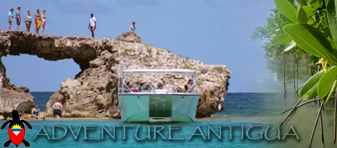
We have been getting some great trip reports and reviews on Tripadvisor recently. This is the latest one and is about our Eco Tour.
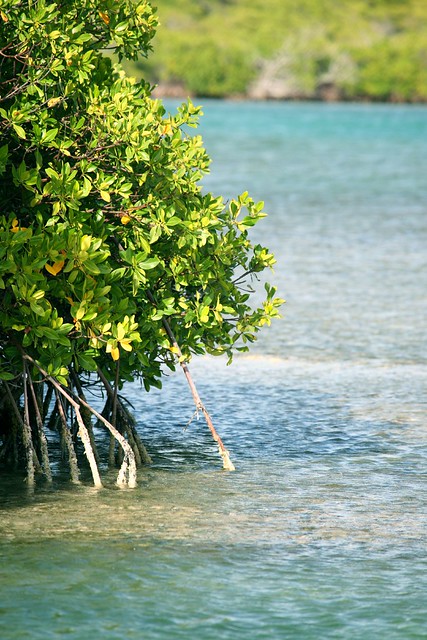
“Unbelievably wonderful day...”
5 of 5 stars Reviewed July 30, 2011 NEW
Had a brilliant time on the Eco tour - have to recommend it highly for the mix of great cruising with informative chat and snorkelling and some mountaineering!
Even my rather aprehensive wife was thrilled with climbing Hells gate and snorkelling over the reefs - she felt safe and comfortable throughout. All this and some amazing Banana bread! Thanks to all for a perfect day
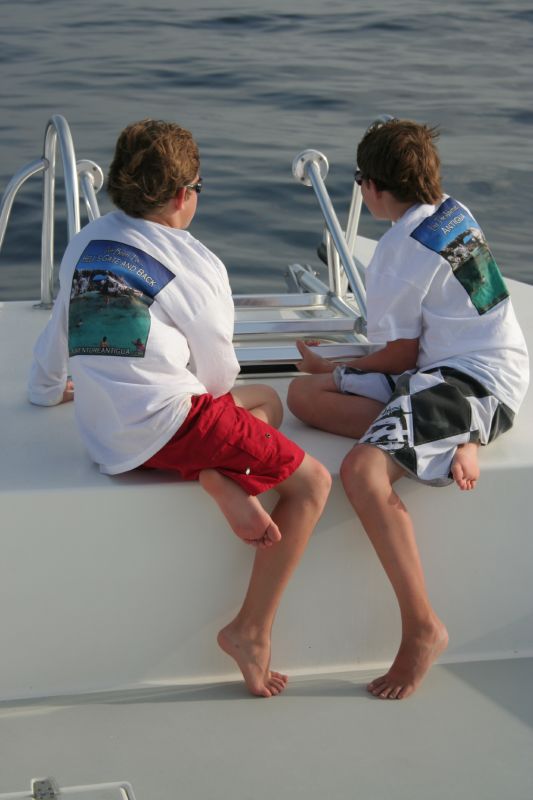
Remember if you would like to read more reviews or write your own CLICK HERE.
Monday, July 25, 2011
great recent trip reviews for Adventure Antigua
“ Wonderful Eco Tour ”
Jul 20, 2011 cda008
We had looked at the Eco Tour and the Extreme Tour several times before our trip to Antigua. Initially we tried to book the Extreme circumnav tour, but it was full. Good thing, though, because we were so very happy with the Eco Tour. We hiked all along Hell's Gate (cannot express how awe inspiring this was - one side the calm Caribbean, the other side the tumultuous Atlantic), climbed to the top of Bird Island, and snorkeled near Bird Island. While snorkeling we actually saw a magnificent spotted Eagle Ray, the biggest lobster any of us tourists had every set eyes on, and tons of fish and beautiful coral. There were a few jelly fish (this was the case all around the island), but they really didn't sting that badly as I held one once back on the boat. The crew were friendly, intelligent, and helpful. They definitely made this trip worth it and the lunch we were served was delicious. We would definitely recommend this as a highlight to your trip!
“ Awesome time on Antigua Extreme ”
Jul 10, 2011 Ace6180
We came back to Antigua for the second time in April of 2011. On our first trip to Antigua in 2010, we saw the Antigua Extreme boat in Jolly Harbor and thought it looked like a lot of fun but we had already booked with another boat trip. So we made sure to book early on the Extreme for our 2011 trip. The boat picked us up in front of our resort and we were greeted by three vey friendly and knowledgable crew members. They took us around the island and told us about the history of Antigua and about the intereting places we were passing. We went to Stingray City which was very fun. We would highly recommend it to anyone. We had a lovely lunch on a quiet beach. We got to see some of the harbors and the large yachts that were there for the upcoming Regatta. We snorkeled in a quiet bay and saw llts of interesting sea life. The crew got in with us and led groups of novices and more advanced snorkelers which was very nice. We stopped for some rum punch on a beach that had the softest sand I've stepped in. After completing our trip around the entire island we were delivered safe and sound back to our resort. It was a wonderful day. We would highly recommend it and will definetly book with them again on our next trip to Antigua.
Jul 20, 2011 cda008
We had looked at the Eco Tour and the Extreme Tour several times before our trip to Antigua. Initially we tried to book the Extreme circumnav tour, but it was full. Good thing, though, because we were so very happy with the Eco Tour. We hiked all along Hell's Gate (cannot express how awe inspiring this was - one side the calm Caribbean, the other side the tumultuous Atlantic), climbed to the top of Bird Island, and snorkeled near Bird Island. While snorkeling we actually saw a magnificent spotted Eagle Ray, the biggest lobster any of us tourists had every set eyes on, and tons of fish and beautiful coral. There were a few jelly fish (this was the case all around the island), but they really didn't sting that badly as I held one once back on the boat. The crew were friendly, intelligent, and helpful. They definitely made this trip worth it and the lunch we were served was delicious. We would definitely recommend this as a highlight to your trip!
“ Awesome time on Antigua Extreme ”
Jul 10, 2011 Ace6180
We came back to Antigua for the second time in April of 2011. On our first trip to Antigua in 2010, we saw the Antigua Extreme boat in Jolly Harbor and thought it looked like a lot of fun but we had already booked with another boat trip. So we made sure to book early on the Extreme for our 2011 trip. The boat picked us up in front of our resort and we were greeted by three vey friendly and knowledgable crew members. They took us around the island and told us about the history of Antigua and about the intereting places we were passing. We went to Stingray City which was very fun. We would highly recommend it to anyone. We had a lovely lunch on a quiet beach. We got to see some of the harbors and the large yachts that were there for the upcoming Regatta. We snorkeled in a quiet bay and saw llts of interesting sea life. The crew got in with us and led groups of novices and more advanced snorkelers which was very nice. We stopped for some rum punch on a beach that had the softest sand I've stepped in. After completing our trip around the entire island we were delivered safe and sound back to our resort. It was a wonderful day. We would highly recommend it and will definetly book with them again on our next trip to Antigua.
Friday, July 22, 2011
Antiguans on holiday
Yup, this time we are in Canada (first time for me) and have enjoyed an amazing part of our holiday on Lake Joseph up in Muskoka. We had perfect weather and company while staying with my wife's family in a traditional cottage. All very different than home back in Antigua. Here are a few pics:
We are now in ultra hot and sunny Toronto and looking for places with good AC. Wow, it's hot! Back home the Adventure Antigua team have been doing a great job and I have been in touch with most of them using whatsapp, google+, facebook, and twitter and skype. While it's great to be able to stay in touch with work to make sure they are all fine, it's good to switch off too. Goodbye!
We are now in ultra hot and sunny Toronto and looking for places with good AC. Wow, it's hot! Back home the Adventure Antigua team have been doing a great job and I have been in touch with most of them using whatsapp, google+, facebook, and twitter and skype. While it's great to be able to stay in touch with work to make sure they are all fine, it's good to switch off too. Goodbye!
Saturday, July 16, 2011
A government not representing the people because of Japanese influence.
This blog post has many links to other blog posts i have written on the topic as well as some info from other media posts including a recent one from the BBC. Click on them for more info.
Recently the International Whaling Convention talks were shut down by Antigua and Barbuda together with other members of the pro whaling group. Antigua and Barbuda's government supports Japan in a quid pro quo arrangement where Japan spends money on certain apsects of our fishery. The grant money is very specific and all goes towards building fish processing plants and small marinas which to this day have never been used as they were designed or planned. Many of the fish storage buildings are rented to regular people to do things as obscure as storage of household items to selling beauty supplies. Not a penny of this Japanese blood money (as i call it in a blog from last year) goes towards fishery management in an effort to make our fishery sustainable. Read more about that here in this recent blog and also by clicking here for another similar blog post.
Most Antiguans polled on the whaling issue by the NGO, ABITPC, said that they were against whaling and our Government's support of Japan. In fact 2386 people polled at places like the Woods Mall in Antigua were against any form of commercial whaling. Many who support Japanese whaling seem to think that it isn't possible to poll Antiguans in a fair way. Anyway, ABITPC's poll from nearly 10 years ago wasn't the only poll. A World Wildlife Fund poll of people in several countries also found the same thing: the average man and women in Antigua is against whaling. Read more here.
Should Your Country Support Whaling?
Knowing that most Antiguans and Barbudans are against whaling and our government's support for whaling, Japan decided to change the propaganda machine's tactics. The message is now: "Don't let those white countries who took advantage of you for so long tell you what to do with your fishery!" Of course our government and those of many other receivers of Japanese blood money have fallen for this message Hook Line and Sinker. They are towing the line with renewed inspiration and saying that nobody should tell them what to do. Their stance is that they believe in the rights of nations to have SUSTAINABLE USE OF THEIR MARINE RESOURCES. As mentioned in a link above and again by clicking here, this notion of sustainable use would be ok if we actually practiced it here. There is no evidence of it at all here where fish stocks are dwindling and fishermen are going deeper and further into the sea to find seafood. I think the new stance is just so crazy on so many fronts. For one as mentioned above our fishery isn't being used in a sustainable way. No money is being spent on fishery management and especially no Japanese money. There isn't any threat to our use of whales as there has never been any history of any use of whales here in Antigua and Barbuda other than in tourism as seen in this video (if you have time) shot in our waters:
Also I don't think it is a case of Antigua and Barbuda being used and abused by former white colonists but more of a case of us being used, abused, and fooled by the neo colonist JAPAN. Chinese and Japanese neo colonialism is subtle to those who have their heads in the sand but what else can it be called. They are controlling what we do and say despite most of the people either not agreeing or not knowing what is going on. When you read articles like this one I think you can understand a bigger picture of what's going on. Cick here to read about how far Japan will go with evidence of bribes, hookers and more. Of course nobody was locked up because it would mean that governments would have to investigate themselves. This kinda thing doesn't happen in countries like ours.
Anyway, while our fishery and reefs decline to the tipping point, our government seems more concerned with Japan's fishery and their rights to hunt and kill whales for "scientific research". The walk out at the IWC hurts whales and dolphins that are not even being hunted by Japan. A proposal was brought by some Latin American (not white former colonists) to set up a whale sanctuary in the South Atlantic. This isn't an area where Japan, Norway, or Iceland hunt whales and neither does St. Vincent and the Grenadines either!!! So none of the pro whaling nations hunt there but on Japan's lead they all walked out of the meeting before a vote could be taken. This made for a collapse of the talks further damaging the IWC. Read more about why whales that are not even being targeted by the Japanese in Oceans not even being used for their whaling are let down by the Antigua and co. walkout by clicking here.
I took a photo of these whales were enjoying our waters off Hawksbill Hotel.

In the meantime reef fish and others continue to vanish off Antigua and Barbuda and people continue to eat imported fish such as "butterfish" and "banga mary". Don't forget that most Antiguan's are against whaling for now. One of my crew who lives in what he describes as "the ghetto" started telling me one day that he watches Whale Wars, which is a program about the only real anti whaling fighters out there. This crazy group drives the Japanese whaling fleet just as crazy with outlandish tactics. Anyway, this rasta crew of mine wanted me to help him get a job on the Whale War boat. I am sure there are many more such people here in Antigua, but our government ignores them.
Wednesday, July 06, 2011
I'll be on 91.1 FM today speaking with the Gov. Environment people about pollution.
It what is turning out to be a regular thing, I have been invited to be part of a Voice of the People panel on Observer Radion 91.1 FM today. On the internet you can find it on http://www.live365.com/stations/observerradio?site=pro
Today's topic is Pollution and I think they want to speak about something I wrote about last year on my blog as well as other things. The blog had the title Antigua's 366th beach is an ignored government toxic waste dump and you can read more and see the photos here http://antiguaisland.blogspot.com/2010/08/antiguas-366th-beach-is-ignored.html. It's a long read but if you want to understand why the oil from your car, your power company or from anywhere gets into the sea then you should check it out and listen to the program. 365Antigua.com's Rob Breadner is seen in the images with me and spent quite a bit of his time and energy taking photos and writing about it too. He even re published my blog on his site as he does with many of the eco pieces i write. Check that here: http://www.365antigua.com/cms/content/green-environment-dumping-hazardous-waste-saturday-aug-21st for more photos and better links.
If you don't have time to read them I can just tell you that for generations oil has been dumped into the ground up at Crabbs where we have several oil using power generation plants. The same happens at the West Indies Oil facility. Recently Mr. Harney started a waste oil plant that uses waste oil and mixes it with another fuel oil to produce a diesel equivalent. Its cheaper and supposedly cleaner than the crappy diesel we get here at the pump. He could expand but not without gov. help.
In the meantime used oil is seeping out of the ground and into the sea especially after big rains. Nothing is being done to fix the problem and a new Chinese generation plant has been built and reports are that there is still no plan for the waste oil it will produce. Read the article. It's interesting!
Of course this radio show will be about pollution in general and there is plenty of it. I also wrote about a massive amount of garbage (mostly plastic) which is washed out of St. Johns each day and especially during rains. See that one and the insane photos here: http://antiguaisland.blogspot.com/2009/09/shocking-photos-and-story-from-st-johns.html
This one was way more simple to fix than the oil but again nothing has been done as far as I know of.
Yesterday I blogged again about another form of pollution. This one is a hard sell here in Antigua where our society seems to think that an Island bathed in brilliant light 24 hours a day is safer and better all around. Again if you have time you should have a read of this blog which has great links, photos and info on how new lighting is killing endangered sea turtles here. http://antiguaisland.blogspot.com/2011/07/chinese-lights-start-killing-turtles-in.html
There is plenty of other pollution going on here in Antigua and this show could be an interesting one. I know that people are mostly going to want to speak about trash on the roads and on the beaches which are big problems too but I hope real issues like the ones above can be talked about too. Please listen and call in if you have time today from 12 until 2 pm and share this note so more people who care about this stuff can hear what our government technicians say. Tag people if you want in this note too (if you can). Thanks, eli.
PS sorry about spelling or grammatical mistakes. I don't care that much about them...
Today's topic is Pollution and I think they want to speak about something I wrote about last year on my blog as well as other things. The blog had the title Antigua's 366th beach is an ignored government toxic waste dump and you can read more and see the photos here http://antiguaisland.blogspot.com/2010/08/antiguas-366th-beach-is-ignored.html. It's a long read but if you want to understand why the oil from your car, your power company or from anywhere gets into the sea then you should check it out and listen to the program. 365Antigua.com's Rob Breadner is seen in the images with me and spent quite a bit of his time and energy taking photos and writing about it too. He even re published my blog on his site as he does with many of the eco pieces i write. Check that here: http://www.365antigua.com/cms/content/green-environment-dumping-hazardous-waste-saturday-aug-21st for more photos and better links.
If you don't have time to read them I can just tell you that for generations oil has been dumped into the ground up at Crabbs where we have several oil using power generation plants. The same happens at the West Indies Oil facility. Recently Mr. Harney started a waste oil plant that uses waste oil and mixes it with another fuel oil to produce a diesel equivalent. Its cheaper and supposedly cleaner than the crappy diesel we get here at the pump. He could expand but not without gov. help.
In the meantime used oil is seeping out of the ground and into the sea especially after big rains. Nothing is being done to fix the problem and a new Chinese generation plant has been built and reports are that there is still no plan for the waste oil it will produce. Read the article. It's interesting!
Of course this radio show will be about pollution in general and there is plenty of it. I also wrote about a massive amount of garbage (mostly plastic) which is washed out of St. Johns each day and especially during rains. See that one and the insane photos here: http://antiguaisland.blogspot.com/2009/09/shocking-photos-and-story-from-st-johns.html
This one was way more simple to fix than the oil but again nothing has been done as far as I know of.
Yesterday I blogged again about another form of pollution. This one is a hard sell here in Antigua where our society seems to think that an Island bathed in brilliant light 24 hours a day is safer and better all around. Again if you have time you should have a read of this blog which has great links, photos and info on how new lighting is killing endangered sea turtles here. http://antiguaisland.blogspot.com/2011/07/chinese-lights-start-killing-turtles-in.html
There is plenty of other pollution going on here in Antigua and this show could be an interesting one. I know that people are mostly going to want to speak about trash on the roads and on the beaches which are big problems too but I hope real issues like the ones above can be talked about too. Please listen and call in if you have time today from 12 until 2 pm and share this note so more people who care about this stuff can hear what our government technicians say. Tag people if you want in this note too (if you can). Thanks, eli.
PS sorry about spelling or grammatical mistakes. I don't care that much about them...
Tuesday, July 05, 2011
Chinese Lights start killing turtles in Antigua again this summer.
Taken from an interesting wiki post on the subject:
Light pollution poses a serious threat to wildlife, having negative impacts on plant and animal physiology. Light pollution can confuse animal navigation, alter competitive interactions, change predator-prey relations, and cause physiological harm.[50] The rhythm of life is orchestrated by the natural diurnal patterns of light and dark, so disruption to these patterns impacts the ecological dynamics.[51]
For the second year running street lights along some of Antigua's most important turtle nesting beaches are killing turtles. Dumping old technology isn't a new thing for the Chinese and the delighted our local politicians by giving them extremely energy hungry street lights for our roads at a time when we can't afford to pay for the fuel that powers them. Why they didn't give us solar powered lights like they even use in China I can only guess and that could be written about on another blog. Anyway these lights are killing turtles. For millions of years sea turtles, all of which are now on the endangered species list, have been nesting on Antigua's shores. These days many don't make it.
The Hawksbill Turtle nests between May and November typically but some females will come at other times during the year too. Leatherbacks and Green turtles nest during the same period at other times during the year. The reality is that there are turtles nesting in varying numbers during every month of the year here in Antigua and Barbuda. The summer months are the busiest.
Read this little piece I did for Antigua's Enjoy Magazine to get an idea about why turtles are being killed by the fairly new Chinese Street Lights and other light pollution here in Antigua:
The sand begins to cool after the sun sets, and the little hawksbills inside have recently broken free from their soft ping pong ball sized eggs. They are getting ready for their first view of the outside world. Digging up to the surface from nearly two feet down, the turtles know that the cooling temperatures mean it is now night and safer to journey to the water in the darkness. As if from a scene taken from the film The Great Escape, the little turtles emerge from their sandy hole and make a dash for the water in the darkness. Amazingly they have some sort pre programmed internal instinct that tells them to go for the brightest thing as they emerge from the nest. The odds of survival are very bad for the little ones and at best, only one in 1000 hatchlings will reach maturity due to all sorts of predators and other threats. Before humans arrived in the Caribbean, the brightest thing on a beach was always the sea lit up by the reflection of millions of stars and often times the moon. Unfortunately these days, artificial lights along the shore often confuse the hatchlings leading them away from the water. Darkwood Beach is a perfect example of harmful lighting to what is actually a good turtle nesting beach. Let your hotel manager or political representative know if you think that lights along your beach are too bright. There are many solutions to this lighting problem which include special bulbs and careful positioning of lights. Turtles almost always hatch at night, but occasionally for one reason or another, a nest may hatch during the day. The artificial lights are just one of many things that can harm the hatchlings.
Antigua and Barbuda see turtles nesting almost year round with Greens, Leatherbacks and Hawksbills having different seasonal nesting times. The busiest time is from May to November when we see beautiful Hawksbills nesting on our shores. My wife runs a turtle program with the Environmental Awareness Group which aims to study nesting habits on Antigua's main land beaches. Most of the study about turtle nesting here has focused on the now famous Jumby Bay turtles which actually nest on Pasture Bay on Long Island. Anyway, she has found several very important beaches here where large numbers of turtles still nest, and the hope is that the study of our turtles can be expanded so that developments along the shore may be cognizant of how important these beaches are.
We are very lucky here in Antigua and Barbuda to have both resident turtles living and feeding off shore as well as nesting adult turtles which are not necessarily the same thing. For example, historically turtles were killed for food when they came ashore in Bermuda to nest, so there are no adult turtles to be found there now. Instead they have hundreds and hundreds of juvenile turtles feeding and passing through the waters there after hatching from places as far away as Costa Rica. They even tried to move eggs from other countries to be incubated on Bermuda only to find out that 20 years later none returned to lay eggs there. Yes it does take about 20 years for the mommy turtle to reach sexual maturity and despite being very territorial the female hawksbill will travel up to 300 miles to return to the beach from where she hatched to lay eggs. In the case of Bermuda they found out that it wasn’t just where they hatched from, but rather from where they have historically hatched from. It’s more of a geographical genetic marker which is difficult to understand and is still being studied. The mother turtle will lay between 100 and 180 eggs into a nest usually in some sort of beach vegetation before going back into the sea. She will come back in two weeks to nest again and may nest three or four times during the season. As mentioned, shoreline vegetation is very important for hawksbills and like other reptiles, the temperature of a nest can help determine the gender of the hatchlings and a nest that has a good mix of daylight warmth and shade will provide a balanced percentage of little boy and girl turtles.
The little ones who have just hatched must swim non stop for days to pass all the dangers of the inshore predators as well as the predators on the off shore reefs. Their goal is to make it into the Atlantic where they can meet up with the huge currents that sweep past the Caribbean. In those currents, they look for floating clumps of Sargasso weed which are interesting habitats providing both food and protection from predators. It will be a long a treacherous two years before they return to their future homes in the Caribbean.
When the Environmental Awareness Group (EAG) found out that Antigua was being given thousands of street lights by the Chinese government they sprang into action. Mykl Clovis who runs the Antigua Sea Turtle Program for the EAG, wrote a letter carefully explaining what normal regular street lights can do to nesting turtles and their hatchlings. She explained why it happens and gave solutions that are used in the USA and many other places around the world where turtles nest. Things like pointing the lights away from the beach, using different frequency bulbs, turning lights off during nesting times, putting the lights lower and behind beach vegetation. I am told that the letter was sent to the Prime Minister, the Fisheries Ministry, the Antigua Public Utilities Authority, the Environment Division, the Public Works Department, The DCA.... you name it and the letter was sent to them. When the EAG met with Cabinet some time in 2010 before the lights were turned on the issue was brought up again. The Prime Minister admitted that he had seen the letter himself. One of the Ministers was heard saying that nobody is going to tell him to turn off his lights! This was the minister responsible for an area where there are three important nesting beaches. Later that summer when the lights were on baby turtles were run over as they wandered around on the road adjacent to the beach.
Last night a mother turtle that had come up to lay on Jabbawock beach ended up in the middle of the brilliantly lit road. A driver nearly ran it over and pulled off to the side of the road. The lights along the road by the bridge were confusing the endangered species and it ended up falling off the bridge into the swamp. The driver saw it swim further into the swamp and away from the beach. As if things are not difficult enough for these amazing creatures!!!
I would like to see lights out along Jabbawock, Dark Wood Beach, Fryes Beach, Little Fryes, Crab Hill Beach and Turners. Then there is the street lights and sport's complex lights in Old Road. Why are the sports facility's lights left on all night when nobody is playing there? We must have money to burn in this country. There are many other beaches where artificial lights cause problems. These endangered animals are on our passports and our leaders just ignore science and reason and are letting them perish.
The day after I blogged this story, this youtube video was posted in Barbados:
It shows a nesting turtle that had been messed up by lights in exactly the same way that the one from jabbawock beach here did here on the same night.
Friday, July 01, 2011
More evidence and denial about how threatened our fisheries are.
Some people on the street are saying that the people representing our Fisheries Ministry don't have a clear understanding of what the words "sustainable use" mean. I don't totally agree with them as I know there are some very good people working at our Fisheries Ministry. Anyway, according to a definition I pulled from the net:
Seasoned fisherman Gerald Price said many of the fishermen have either been passing the time for most of the week playing games or doing repairs to their boats.
“For the first in a long time there is no fish in the market, not even a scale. Housewives are not likely to get fresh fish for the rest of the week going into next week,” Price told The Daily OBSERVER.
It would appear that it is not just the rough seas and high winds which are affecting the catch. According to Dale Henry, a veteran of more than 30 years, there is just not many fish to be caught any more.
“We are not out of stock, but a lot of boats are down. She said large vessels such as those operated by Andy Roberts, which bring in thousands of pounds of fish are currently not operational.
The problem, she said, is that many people prefer snappers and when they are told there is none, they automatically assume there is no fish.
The conditions for fishing are not likely to improve any time soon. In fact, Meteorologist Orvin Paige said there would be some increased wind conditions across the islands associated with a high-pressure system. This will lead to worsening sea conditions which will make it difficult for fishermen to ply their trade.
He indicated that a tropical wave east of the Windward Islands would bring showers which could move into the vicinity of the Leeward Islands, including Antigua, over the next 24 hours. This will make it difficult for persons over the open waters in terms of visibility.
(More in today’s Daily OBSERVER)
Sustainability is sometimes known as the capacity to endure. In ecology, the word describes how biological systems remain diverse and productive over time. Long-lived and healthy wetlands and forests are examples of sustainable biological systems. For humans, sustainability is the potential for long-term maintenance of well being, which has environmental, economic, and social dimensions.With that in mind and after you read my blog from last week (click here) you can clearly see how the there seems to be a problem with the words "sustainable use". Today we see an article published in Antigua's Daily Observer where once again our fisheries department stands firm in their stance that all is well and the fishermen, divers, snorkelers and consumers have it all wrong. Despite all of these parties agreeing that the fish stocks are extremely deminished, our government's fisheries department says there is no shortage at all. Here is the article:
Bad weather and poor catch affect fish supply
By Juliet Benjamin - Friday, July 1st, 2011.
Article Hits: 19
No Comments
One month into the Atlantic Hurricane season, some fishermen are reporting that bad weather is forcing them to remain on land and as a consequence there is a shortage of fresh fish at the market.Seasoned fisherman Gerald Price said many of the fishermen have either been passing the time for most of the week playing games or doing repairs to their boats.
“For the first in a long time there is no fish in the market, not even a scale. Housewives are not likely to get fresh fish for the rest of the week going into next week,” Price told The Daily OBSERVER.
It would appear that it is not just the rough seas and high winds which are affecting the catch. According to Dale Henry, a veteran of more than 30 years, there is just not many fish to be caught any more.
“There’s scarcity. We are going further, deeper and the situation remains the same. Since year before the last, we have difficulty in finding fish.”
Henry said he went out this week even though there were 8 to 10-foot swells.
“Occasionally, sometimes, we have a good catch. But 90 per cent of the time we are just covering expenses. We don’t know if it’s climate change or global warming. Our fisheries is not doing so much research. They are just doing a guessing game out there right now,” Henry surmised.
A check with Antigua Fisheries, however, revealed there was no shortage of fish there. General Manager Mavis George was unable to say just how much fish is purchased on a weekly basis from local fishermen, but she indicated there was no lack of fish at the department.“We are not out of stock, but a lot of boats are down. She said large vessels such as those operated by Andy Roberts, which bring in thousands of pounds of fish are currently not operational.
The problem, she said, is that many people prefer snappers and when they are told there is none, they automatically assume there is no fish.
The conditions for fishing are not likely to improve any time soon. In fact, Meteorologist Orvin Paige said there would be some increased wind conditions across the islands associated with a high-pressure system. This will lead to worsening sea conditions which will make it difficult for fishermen to ply their trade.
He indicated that a tropical wave east of the Windward Islands would bring showers which could move into the vicinity of the Leeward Islands, including Antigua, over the next 24 hours. This will make it difficult for persons over the open waters in terms of visibility.
(More in today’s Daily OBSERVER)
Tuesday, June 28, 2011
Rendezvous Bay looks like it may be developed. The conceptual plan:
As many of you who follow my blog and Adventure Antigua know, our Xtreme Circumnav makes a daily stop at Rendezvous Bay. Back in 1995 when we added this tour to our other Adventure Antigua tours, we picked this beach because it was so hard to get to that it was a perfect spot to be alone. Our guests were treated to a deserted beach where things were as natural as they were when the Arawaks fished from there back before the Europeans arrived in the Caribbean.
Here is a little video for those who have never seen the bay. I am always surprised by how few Antiguans and Barbudans have been there.
The land along this huge bay is owned by several local families. For years the property has been for sale on the net and I had no doubt that one day there would be talk of development there. In fact, we have seen real estate people on the beach while doing our tour stop there many time. One xtremely wealthy person who had private chartered our boat was one of the people interested at one time. Anyway, one of local owners are Walters family and they have teamed up with some foreign investors and developers in order to develop their property. If you are Antiguan or know your Antigua history then you will remember that one of the members of this big family, George Walter, became Premier here back in 1971. Last year I received an email that was being passed around by the some in the Environmental Awareness Group where the described a new development that was being planned at Rendezvous Bay. The author of the email said that they all had to fight to make sure the development was blocked. This was my reply:
Keeping in mind that this private property sits within the National Parks it will be interesting to see what the government does. There is a meeting in Nelson's Dockyard on Thursday. Call the National Parks for more info on this meeting.
Here is a little video for those who have never seen the bay. I am always surprised by how few Antiguans and Barbudans have been there.
The land along this huge bay is owned by several local families. For years the property has been for sale on the net and I had no doubt that one day there would be talk of development there. In fact, we have seen real estate people on the beach while doing our tour stop there many time. One xtremely wealthy person who had private chartered our boat was one of the people interested at one time. Anyway, one of local owners are Walters family and they have teamed up with some foreign investors and developers in order to develop their property. If you are Antiguan or know your Antigua history then you will remember that one of the members of this big family, George Walter, became Premier here back in 1971. Last year I received an email that was being passed around by the some in the Environmental Awareness Group where the described a new development that was being planned at Rendezvous Bay. The author of the email said that they all had to fight to make sure the development was blocked. This was my reply:
there isn't anything in this email to sink your teeth into really. What I mean is that as #$%^ says, development has been a real possibility for as long as tourism has been around and its actually taken considerably longer than many of us expected for it to come to this. This property is by far the best one for a big tourism development in Antigua from a tourism and developmental point of view. Even half moon bay pales in comparison. Without a huge shift in the political and cultural status quo, this development will surely happen as long as there is a fraction of the money needed to get it started. The vast majority of Antiguans clearly prefer tourism development over environmental protection. This is seen on a daily basis from our point of view out on the water doing circumnavigations and is perennially echoed from every political platform. #$%^ and others are dreaming if they think that they can do anything to bar a development of this magnitude from happening. The only thing to do is to try to influence the developer in the design and construction phases. How to do this will be up for debate but relying on the government's DCA, Environment Division, Fisheries, the NPA or any other division will be a wasted effort.I never got a reply and was not included in any emails on this subject again. Quite some time before this email some friends of mine who had felt that the EAG wasn't the right environmental group for us got together and started The Antigua Conservation Society and while surfing one day down near Rendezvous I saw a local architect I knew and a bunch of other people who looked very much like developers. I went to my car and took out a business card and approached them. I introduced myself and said that i had heard that the bay was about to be developed. We had a conversation and I explained that the ACS would like to meet with them to discuss the plans. Since then we have had several productive meetings and while no development at all would be best for the environment, we feel that the proposed development isn't nearly as bad as we had feared. They are in the very earliest of stages in this proposed development and there is so much more that can be done to make sure they have the least impact possible. We will be meeting with them again this week. In the meantime, feel free to read about here www.rbrec.com
Keep in mind that our country is almost bankrupt and there are thousands of former construction workers and many others out of work at the moment at a time when most people still believe in perpetual development as being the only way our economy can survive. Sustainable Development is a fancy catch phrase about as realistic at this juncture in our history as stopping the development. Ten years ago I attended a tourism conference where many gathered were saying that we needed more development and more "attractions". I asked if the government and tourism stakeholders there considered an undeveloped beach an attraction. The conference hall erupted in laughter.
The environmental implications associated with this project are fairly serious, but similar serious threats are turned into reality monthly here without much if anything being done.
I think a very good article should be written that doesn't make the average person scoff as those tourism officials did at my theory of a deserted beach as an attraction all those years ago. It should be written in a way assuming the development will go ahead, but pointing out to people (and developer) what's so special about the varied ecosystems supported in the area giving examples of how similar systems were tarnished by other developments in the past.
Sad but inevitable I'm afraid.
Let me know if there's anything you or others concerned think I could help with on this issue.
Eli
Keeping in mind that this private property sits within the National Parks it will be interesting to see what the government does. There is a meeting in Nelson's Dockyard on Thursday. Call the National Parks for more info on this meeting.
Thursday, June 23, 2011
Antigua in the news again when it comes to international whaling.
While Japan continues to pump millions of dollars into our politricks and fisheries department the Fisheries ministers continue to tow the line. While fishemen all over Antigua cry for stronger fisheries management here so that our fishery can be sustainably used, our minister is in foreign lands supporting Japanese whaling and speaking about the threats against our sustainable use of our fishery. This stance is what is fed to our ministers by the real propaganda machine that is the Japanese whaling interest. I only wish the politicians knew what the words sustainable use meant and acted like we cared about that policy here. Read this article first that is a shortened online version of what was published on the daily observer yesterday:
The estimated loss of millions of dollars in fish to poachers and the lack of legislation and regulations to protect Antigua & Barbuda’s fish stock have prompted stakeholders in the industry to call on the government for protection.
The call came collectively yesterday from the Antigua & Barbuda Fishermen’s Co-operative, the Antigua & Barbuda Sport Fishing Association and environmentalist Eli Fuller.
Speaking on OBSERVER Radio’s Voice of the People, they agreed on the need for better management of fishing resources in order to protect what’s left for fisher folk to make a living.
Fuller set the tone for the discussion by outlining Antigua & Barbuda’s losses in the sector.
“I feel, and many of my colleagues feel, that fishing methods in Antigua and fisheries management are being done in a way that our resources are not being taken in a sustainable way,” he said.
“Apart from everything else, we’re seeing huge amounts, millions and millions of US dollars worth of fish caught in our waters, taken out of our waters, without anybody in Antigua having any knowledge of it. If you want the facts and figures, you have to go and ask Guadeloupe and St Barths,” Fuller added, suggesting that the illegal catches ended up in those markets.
“I think that if we’re really going to consider fishing as a sustainable thing for people to do and also to see fish on our shelves and our markets, we have to really take a serious look at what is happening in Antigua because fish are vanishing before our eyes and we’re not seeing the benefits,” he added.
Fuller, along with chairman of the sports fishing association, Phillip Shoul, as well as Gerald Price and Len Mussington of the Fishermen’s Co-operative, stressed the need for legislation to protect the industry.
Shoul noted that back in 2004, a new draft Fisheries Act was put together but lamented that it has not yet gone to Parliament.
Mussington said the co-operative would likely take up the charge to get the legislation fast-tracked. The draft law included the designation of certain areas as no-fish zones, closing and opening of seasons to help rebuild depleted grounds, as well as provisions for foreign vessels to sport fish here.
Highlighting the concerns about dwindling stock, Price noted that local fishermen have to travel as far as 30 miles out to net “good quality fish” because shallow grounds have been depleted of their stocks as a result of poor fishing methods and over fishing.
and then this one below.
By Observer News - Thursday, June 23rd, 2011.
Fisheries Ministers from six Eastern Caribbean islands have affirmed their commitment to work to achieve a common position on the sustainable use of marine resources.
The ministers, along with chief fisheries officers from the six territories, marine biologists, OECS officials, international experts and representatives of the regional media met at the Bay Gardens Hotel in St Lucia on June 20 and 21.
The six territories represented were the host country, St Lucia, along with Antigua and Barbuda, Dominica, Grenada, St Kitts & Nevis and St Vincent & the Grenada.
They are all members of the International Whaling Commission (IWC), and are seeking to present a harmonized position when they attend and participate in 63rd annual meeting of the IWC next month in the UK.
The regional territories continue to insist that their voting over the years for the lifting of a 1982 moratorium on commercial whaling has less to do with support for Japan and other pro-whaling nations (such as Norway and Iceland), and more an expression of their own principled stand on the issue.
The islands maintain that given their tiny land masses, the vast majority of natural resources available to them for food is contained in the huge marine spaces surrounding them, and that they have a right to harvest and utilize these resources in a controlled, well-managed and sustainable way.
The six Caribbean islands, almost all of which engage in some form of whaling as a small scale tradition, believe that if the right to sustainable use of marine resources is not defended and upheld, the attempts at prohibition could extend to other marine species on which much of their food security depends, such as conch, lobster and tuna.
Antigua & Barbuda’s Agriculture and Fisheries Minister Hilson Baptiste was blunt when he declared: “If we band ourselves together, we will have no problem. We are on the right track. Sustainable food security is what we are fighting for, and the right to do what we want to do around our own countries, in our own waters. Our 200-mile exclusive economic zone is ours to do what we like with. We don’t want anyone to come and tell us we cannot catch conch tomorrow or we cannot touch tuna the next day, or that lobsters are off limits. We are fighting that.”
In the past OECS countries have sought to maintain a harmonized position at the IWC, a point, which was noted by St Lucia’s Agriculture Minister Ezekiel Joseph.
“I want to see a full commitment by all of us with regard to sustainable use,” he said. “I am getting mixed signals with regard to the sustainable use of our resources, but where St Lucia is concerned we are fully committed and will remain committed,” he added.
Echoing the concerns of his Antigua & Barbuda colleague, Joseph continued: “Today we are dealing with whales. Tomorrow it will be the tunas and the conchs and the lobsters – which are critical and important to our food security.”
In recent years, Dominica has reviewed its sustainable use policy as it struggled to balance support for whaling with its eco-tourism marketing as the environmentally pristine “Nature Isle.”
For the past five years, Dominica has abstained from voting at the IWC, a marked change from its previously whole-hearted support for a controlled resumption of commercial whaling within the overall principle of sustainable use.
Present at this week’s meeting in St Lucia was Dominica’s Agriculture Minister, Kenneth Darroux, who sought to clarify the development of his country’s position as IWC 63 approaches. He was forthright in explaining the uphill battle that agriculture ministers like himself often face in convincing stakeholders in tourism and other areas of economic activity that sustainable use of marine resources is compatible with the country’s overall development thrust.
“Dominica still maintains that it supports sustainable use of all marine resources,” Darroux said. “However our country has taken a four- or five-year stand on what Dominica felt were or still are its needs at present. While we support the sustainable use of our marine resources, Dominica is probably a little different from the other OECS islands in terms of the nature of our touristic resources. While probably a lot of the other OECS countries can boast of certain expanses of white sand beaches, we, in Dominica, don’t have this.”
Darroux referred to the enormous PR and propaganda machinery of international anti-whaling organizations such as Greenpeace, and the damage they could do to Dominica’s tourist industry in what are already very difficult economic times.
“For the past five or six years, we’ve managed fairly successfully to market ourselves as an eco-tourism destination. How do I go back to Cabinet and appease the anxiety of my tourism minister colleague, if he is advised that Dominica would lose millions annually from whale watching should it change its position?”
Conference coordinator Daven Joseph reassured Darroux that there was no shortage of sympathy or understanding for the considerations with which Dominica had to wrestle over the sustainable use issue as it pertains to whaling.
Joseph, a marine scientist and former chief fisheries officer of Antigua & Barbuda, puts it this way: “It has never ever been proven in the Caribbean that tourism has ever been adversely affected by any propaganda coming from the anti-whaling side. As a matter of fact, tourism development in the region has shown significant improvement – and there is statistical evidence to show this – in spite of the threats and actual launching of propaganda from these groups.”
In offering possible solutions, Joseph said: “It is critical that we put in place a very strong PR programme for the sustainable use programme in the region.”
There has never been a single noticeable effort at marine management here in Antigua or Barbuda that puts some sort of control on fishermen either locally or foreign (who by the way catch 100 times more fish in our waters than our own fishermen fo) to try to uphold the principal of sustainable use. Just recently the fisheries minister went before our Cabinet and pushed an executive order through that gave direction to the fisheries department and other relevant authorities to ignore the law on spear fishing ultimately making it unpunishable even in Marine Protected Areas. Does is sounds like the minister and politicians are simply towing the line or really caring about our fishery and the sustainable use of it? You decide.
Eli Fuller
Antigua Conservation Society Inc.
The estimated loss of millions of dollars in fish to poachers and the lack of legislation and regulations to protect Antigua & Barbuda’s fish stock have prompted stakeholders in the industry to call on the government for protection.
The call came collectively yesterday from the Antigua & Barbuda Fishermen’s Co-operative, the Antigua & Barbuda Sport Fishing Association and environmentalist Eli Fuller.
Speaking on OBSERVER Radio’s Voice of the People, they agreed on the need for better management of fishing resources in order to protect what’s left for fisher folk to make a living.
Fuller set the tone for the discussion by outlining Antigua & Barbuda’s losses in the sector.
“I feel, and many of my colleagues feel, that fishing methods in Antigua and fisheries management are being done in a way that our resources are not being taken in a sustainable way,” he said.
“Apart from everything else, we’re seeing huge amounts, millions and millions of US dollars worth of fish caught in our waters, taken out of our waters, without anybody in Antigua having any knowledge of it. If you want the facts and figures, you have to go and ask Guadeloupe and St Barths,” Fuller added, suggesting that the illegal catches ended up in those markets.
“I think that if we’re really going to consider fishing as a sustainable thing for people to do and also to see fish on our shelves and our markets, we have to really take a serious look at what is happening in Antigua because fish are vanishing before our eyes and we’re not seeing the benefits,” he added.
Fuller, along with chairman of the sports fishing association, Phillip Shoul, as well as Gerald Price and Len Mussington of the Fishermen’s Co-operative, stressed the need for legislation to protect the industry.
Shoul noted that back in 2004, a new draft Fisheries Act was put together but lamented that it has not yet gone to Parliament.
Mussington said the co-operative would likely take up the charge to get the legislation fast-tracked. The draft law included the designation of certain areas as no-fish zones, closing and opening of seasons to help rebuild depleted grounds, as well as provisions for foreign vessels to sport fish here.
Highlighting the concerns about dwindling stock, Price noted that local fishermen have to travel as far as 30 miles out to net “good quality fish” because shallow grounds have been depleted of their stocks as a result of poor fishing methods and over fishing.
and then this one below.
By Observer News - Thursday, June 23rd, 2011.
Fisheries Ministers from six Eastern Caribbean islands have affirmed their commitment to work to achieve a common position on the sustainable use of marine resources.
The ministers, along with chief fisheries officers from the six territories, marine biologists, OECS officials, international experts and representatives of the regional media met at the Bay Gardens Hotel in St Lucia on June 20 and 21.
The six territories represented were the host country, St Lucia, along with Antigua and Barbuda, Dominica, Grenada, St Kitts & Nevis and St Vincent & the Grenada.
They are all members of the International Whaling Commission (IWC), and are seeking to present a harmonized position when they attend and participate in 63rd annual meeting of the IWC next month in the UK.
The regional territories continue to insist that their voting over the years for the lifting of a 1982 moratorium on commercial whaling has less to do with support for Japan and other pro-whaling nations (such as Norway and Iceland), and more an expression of their own principled stand on the issue.
The islands maintain that given their tiny land masses, the vast majority of natural resources available to them for food is contained in the huge marine spaces surrounding them, and that they have a right to harvest and utilize these resources in a controlled, well-managed and sustainable way.
The six Caribbean islands, almost all of which engage in some form of whaling as a small scale tradition, believe that if the right to sustainable use of marine resources is not defended and upheld, the attempts at prohibition could extend to other marine species on which much of their food security depends, such as conch, lobster and tuna.
Antigua & Barbuda’s Agriculture and Fisheries Minister Hilson Baptiste was blunt when he declared: “If we band ourselves together, we will have no problem. We are on the right track. Sustainable food security is what we are fighting for, and the right to do what we want to do around our own countries, in our own waters. Our 200-mile exclusive economic zone is ours to do what we like with. We don’t want anyone to come and tell us we cannot catch conch tomorrow or we cannot touch tuna the next day, or that lobsters are off limits. We are fighting that.”
In the past OECS countries have sought to maintain a harmonized position at the IWC, a point, which was noted by St Lucia’s Agriculture Minister Ezekiel Joseph.
“I want to see a full commitment by all of us with regard to sustainable use,” he said. “I am getting mixed signals with regard to the sustainable use of our resources, but where St Lucia is concerned we are fully committed and will remain committed,” he added.
Echoing the concerns of his Antigua & Barbuda colleague, Joseph continued: “Today we are dealing with whales. Tomorrow it will be the tunas and the conchs and the lobsters – which are critical and important to our food security.”
In recent years, Dominica has reviewed its sustainable use policy as it struggled to balance support for whaling with its eco-tourism marketing as the environmentally pristine “Nature Isle.”
For the past five years, Dominica has abstained from voting at the IWC, a marked change from its previously whole-hearted support for a controlled resumption of commercial whaling within the overall principle of sustainable use.
Present at this week’s meeting in St Lucia was Dominica’s Agriculture Minister, Kenneth Darroux, who sought to clarify the development of his country’s position as IWC 63 approaches. He was forthright in explaining the uphill battle that agriculture ministers like himself often face in convincing stakeholders in tourism and other areas of economic activity that sustainable use of marine resources is compatible with the country’s overall development thrust.
“Dominica still maintains that it supports sustainable use of all marine resources,” Darroux said. “However our country has taken a four- or five-year stand on what Dominica felt were or still are its needs at present. While we support the sustainable use of our marine resources, Dominica is probably a little different from the other OECS islands in terms of the nature of our touristic resources. While probably a lot of the other OECS countries can boast of certain expanses of white sand beaches, we, in Dominica, don’t have this.”
Darroux referred to the enormous PR and propaganda machinery of international anti-whaling organizations such as Greenpeace, and the damage they could do to Dominica’s tourist industry in what are already very difficult economic times.
“For the past five or six years, we’ve managed fairly successfully to market ourselves as an eco-tourism destination. How do I go back to Cabinet and appease the anxiety of my tourism minister colleague, if he is advised that Dominica would lose millions annually from whale watching should it change its position?”
Conference coordinator Daven Joseph reassured Darroux that there was no shortage of sympathy or understanding for the considerations with which Dominica had to wrestle over the sustainable use issue as it pertains to whaling.
Joseph, a marine scientist and former chief fisheries officer of Antigua & Barbuda, puts it this way: “It has never ever been proven in the Caribbean that tourism has ever been adversely affected by any propaganda coming from the anti-whaling side. As a matter of fact, tourism development in the region has shown significant improvement – and there is statistical evidence to show this – in spite of the threats and actual launching of propaganda from these groups.”
In offering possible solutions, Joseph said: “It is critical that we put in place a very strong PR programme for the sustainable use programme in the region.”
There has never been a single noticeable effort at marine management here in Antigua or Barbuda that puts some sort of control on fishermen either locally or foreign (who by the way catch 100 times more fish in our waters than our own fishermen fo) to try to uphold the principal of sustainable use. Just recently the fisheries minister went before our Cabinet and pushed an executive order through that gave direction to the fisheries department and other relevant authorities to ignore the law on spear fishing ultimately making it unpunishable even in Marine Protected Areas. Does is sounds like the minister and politicians are simply towing the line or really caring about our fishery and the sustainable use of it? You decide.
Eli Fuller
Antigua Conservation Society Inc.
Sunday, June 19, 2011
Huge pod of playful dolphins check us out
Last weekend while out fishing we came to a spot where a huge pod of over 50 dolphins were fishing. As soon as we got close to them they started jumping and playing in the boat wake. One of them jumped pretty high and a bit too close to the front of Xtreme. The boat was doing about 10 mph going into the wind and waves and the dolphin was in the air for so long that when he came back down he landed very very close to the boat and me. I got wet! On this day we also saw a large pod of pilot whales. The next day we saw a Blainvilles Beaked Whale which was something that none of us had done before. All fun!
www.adventureantigua.com
www.adventureantigua.com
Thursday, June 16, 2011
St James's Club Antigua Resort Video 2011.mov
My friends at The St. James's Club Antigua Resort shared this video with me and shows some great footage of their family resort as well as some nice stuff from Antigua. Their guest services and tour desk is next to the reception and they won't usually push our tour as there are many sold from there. Make sure you ask them about Adventure Antigua's tours.
Thursday, June 09, 2011
A big used fishing gear sale this weekend at Tournament.
Taken from a press release about the fishing tournament:
Team Xtreme is going out for a warm up session with some new additional crew tomorrow. See you there later.
Also new for 2011, on Friday June 10, a secondhand Fishing Gear Flea Market will be held. It is hoped that fishermen from around the island, whether they are entering the tournament or not, will come to Nelson’s Dockyard and see what bargains they can pick up. Competing fishermen are bringing their used gear and tackle and will be selling them from 4 pm-7 pm.Lord knows we have plenty of old gear and line and we will be there trying to get rid of it. If you would like to get into fishing but can't afford new gear please come and check out the action tomorrow afternoon in Nelson's Dockyard.
Team Xtreme is going out for a warm up session with some new additional crew tomorrow. See you there later.
Sunday, June 05, 2011
Antigua Sportfishing Tournament this weekend want to come?
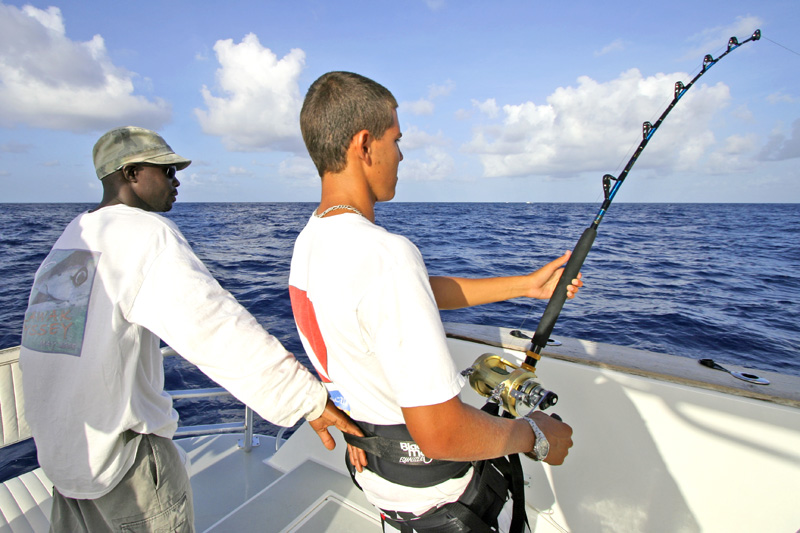
I started Aventure Antigua for many reasons, and one of the main ones was that with my boats I would always be able to go fishing on my days off if I wanted to. Adventure Antigua has put more boats in Antigua's fishing tournaments than any other individual or company and we will continue that trend this coming weekend when we will have at least one boat fishing.
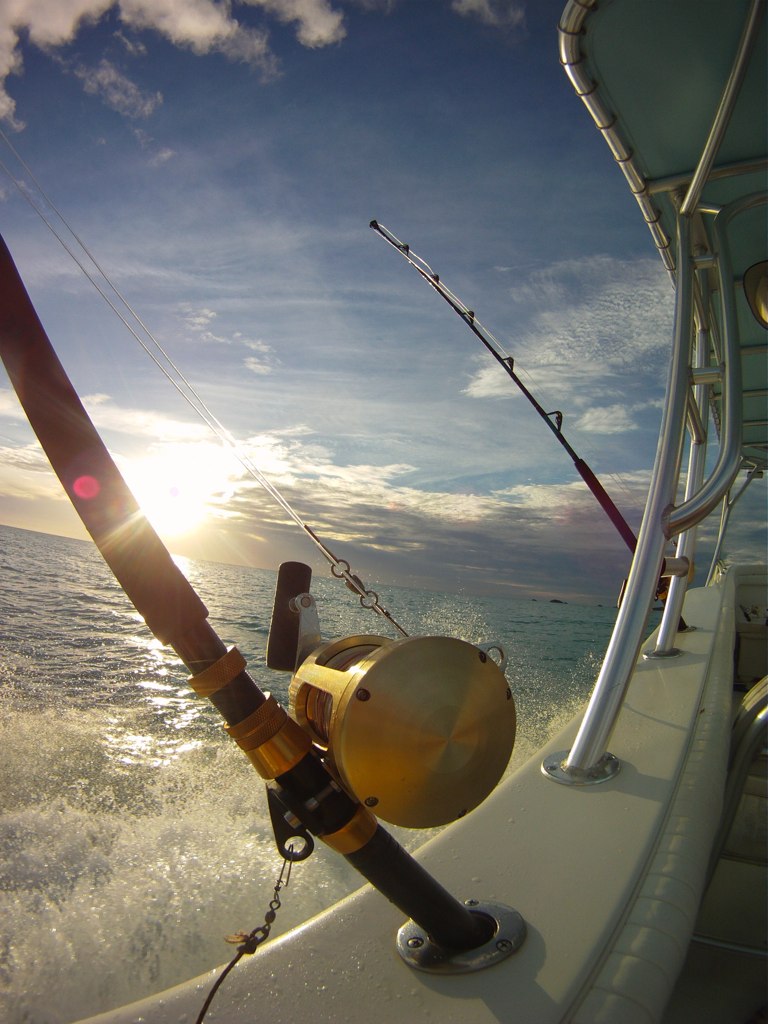
Xtreme will be the boat that I am on with one or two of our old Team Xtreme crew. This year the rest of the crew happens to be off island and for a change we are going to be taking paying guests who want a chance at catching a Blue Marlin.
As some of you may know, we have finished in the top three of the Marlin Division several times and each year we are are among the main contenders for the top prize. We are extremely serious about the equipment we use and prepare it going over every aspect each year weeks before the competition starts.
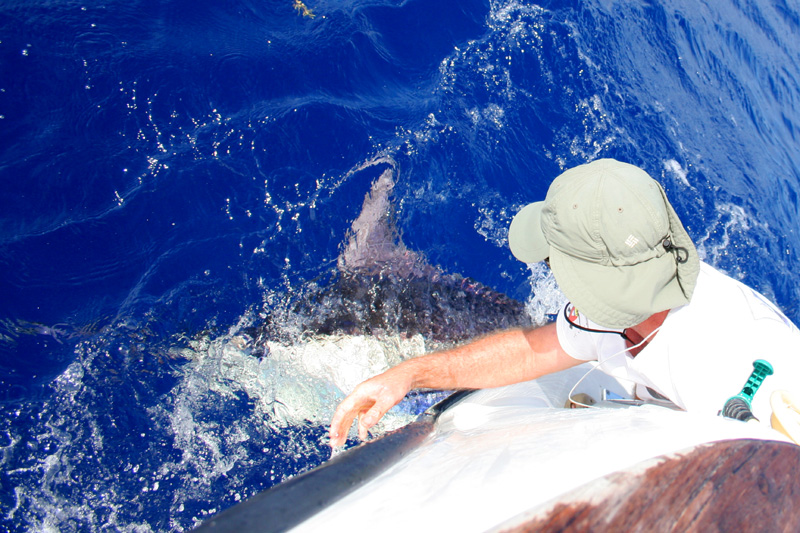
Fishing for marlin is unlike fishing for most other fish as the fish are just so big and powerful. Its not like catching a mahi mahi where once the fish is hooked well you will bring it to the boat. Blue Marlin are capable of stripping all the line (900 meters) from a reel that has a nearly 30 lbs of drag on the reel. We have fought marlin for over two hours several times following the fish sometimes at speeds of up to 14 knots. Many people say marlin fishing is boring as the hookup rate is slower than it is for many of the other smaller fish, but when you do get a fish on the line the level of excitement is higher than you can imagine. The raw power of the fish is something to behold and if you are the one who's suited up in the harness and holding the rod, you better be ready for the fight of your life.
Our boat is rigged for stand up tackle and we don't have a fighting chair. This means you need to be fit and your fitness will be tested without a doubt.
Even though we use the boat to chase the fish the fight is never easy when you have a large marlin on the line. Antigua has never had a "grander" come back to the scales but many of us have seen or fought them. We have had two fish over the past 6 years come and take one of our lures that could have been over a thousand pounds, but each time they "spat the hook". We have released over thirty marlin and brought two back to the scales. One was 589 lbs and the other was just under the minimum weight of 300lbs.
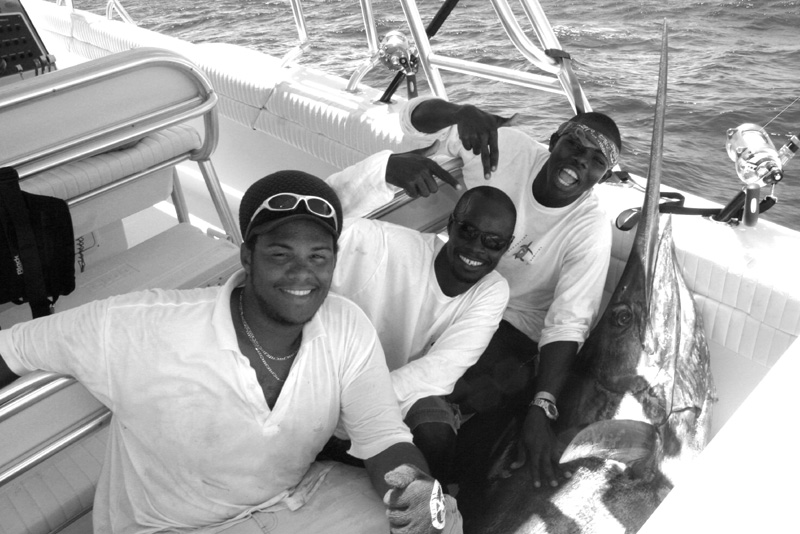
We made a mistake on that one and until our tournament is a catch and release tournament similar mistakes will be made when no fish has been brought back to the scales. This year we have more methods at our disposal to make sure our fish are over the 300 lb minimum and if we are not sure they will be released like the majority of the others.
Someone was saying that most marlin released end up perishing because of exhaustion, but we know that not to be true now after many recent tagging studies have shown. As you will read on this site (click here), almost all blue marlin tagged with satellite transmitters after being caught on rod and reel survived after being released. This makes us feel way better about fishing for them and we spend extra time and effort making sure they are released with as little stress as possible and with reviving if colour is missing from them. This video
was taken two weekends ago and is of our only marlin warm up this year. Notice how the second marlin took more than half of the line off the reel. We will go out one more time to warm up this friday and come in to Nelson's Dockyard for the registration. The official tournament is on Saturday and Sunday and then on Monday there is an optional day of fishing for Marlin only. That's up to three days of Marlin Fishing, but there are costs associated with all of this and this year we are looking at taking paid guests on each day. If you are interested or know of someone that could be interested in being a guest and getting a chance to fight a Blue Marlin please contact me ASAP. We will take a maximum of two guests per day. The cost will be reasonable compared to regular full day marlin charters on other boats. My mobile number is +1 268 725 7263.
Call soon as spots are limited. The weather forecast is looking great too so I am very excited about this coming weekend! If you are on island pick up a copy of the latest issue of Enjoy magazine as there is a cool article in there about marlin fishing.
Thursday, June 02, 2011
Same crew, same tour, same boat and very different reviews.
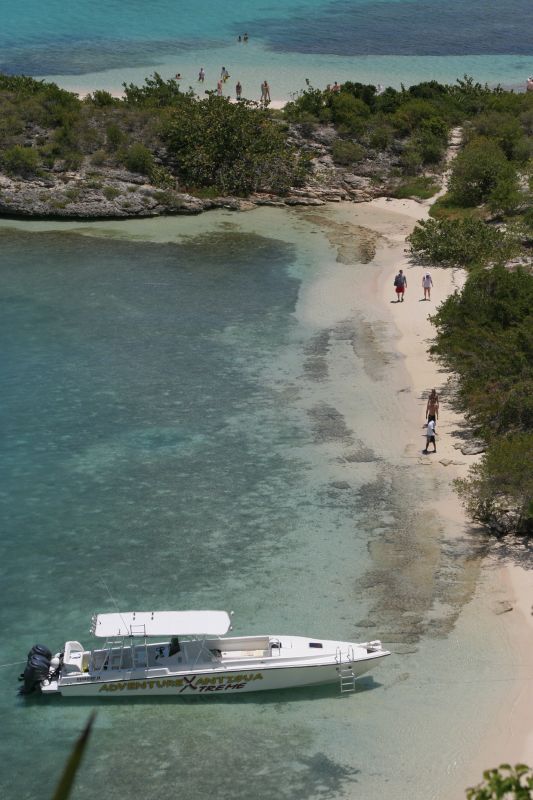
They are both of our Xtreme Tour and both parties went to our website where there is a description of the boat, a description of the tour, photos and this video:
Anyway, this one (the better one) came from Tripadvisor. Don't forget if you have been on one of our tours then you too can post a review on tripadvisor by clicking this link. Here is the review:
The next review came from Cruise Critic and was also posted by a guest that booked on our website. They say they enjoyed the tour, but felt that other people wouldn't have. They say we put an unreasonable number of people on the boat, but we have seats for 23 on our 45 foot boat and NEVER have anyone standing. When we are full we have 23 people on the boat but rarely are that full. Anyway, same tour, same crew, same boat, same general review and tour date.
moowlisci... North Linolnshire
8 reviews “Extreme Circumnav-AMAZING!”
Reviewed May 28, 2011 - We went on Adventure Antigua's Eco Tour last year when in Antigua and were really impressed with the entire set up so this year decided to do the Extreme Circumnav with them.
We were collected from the beach at the Hawksbill resort, the resort next door to Galley Bay where we were staying.
The crew, Chris, JD and Trevor were all friendly, Chris took us on the Eco Tour last year so we knew we had a knowledgable guide.
It is very clear these guys all really care about the things they are showing you on these trips, when we stopped off on the beach at Rendezvous bay Chris was seen digging on the beach, when asked what he was doing JD replied, 'oh he's re planting coconut palms which have been washed out by the rain!'
The boat was amazing, fast and thrilling ! Especially when you go around the Atlantic side of the island (if you sit at the back on the left watch out for the spray ) the bigger the swell the better the ride!
We recommended the Eco tour to our parents who had travelled to Antigua with us (we were there to be married) my Mother DOES NOT do boat trips but she was convinced it was a must to do.
They came back from the day on the tour thrilled with it, again Chris, Nichola and crew had made sure they had a really good day .
We really cant sing the praises of Adventure Antigua highly enough, whichever tour you do with them.
The crew are awesome, the boats comfrotable, clean and safe and the food was SO good.
Not a booze cruise, if you want a cramped patrty boat, dancing, loud music and alcohol this is not the trip for you.
If you want to know about the facinating nature and history of this wonderful place in a relaxed, comfortable environment with a great crew making sure you enjoy yourself then this is the trip for you. They do serve a mean rum punch but not until you're cruising home in the afternoon as a leisurely end to the day.
May 31st, 2011, 08:49 PMI am discussing this review with my crew to see if there was a problem that we can solve, but the seats up front are favorites for many of our Xtreme Tour return guests. I think the third sentence is possibly a clue as to why the guests didn't think the tour was as awesome as the first reviewers. Both of my powerboat tours have themes of Adventure and people who don't want to move around may be better off on one of the other trips that we do. That being said, we have taken people on this tour who wouldn't take no for an answer and asked the crew to put their wheel chairs in the cabin while they enjoyed the tour around Antigua.
gunnercade
Cool Cruiser Join Date: Apr 2010
Posts: 13
We did the Extreme Tour with Adventure Antigua last week. It was basically a tour around the island on a speedboat. It's not for people without full mobility-getting in and out of the boat can be tricky.
The good: it was fun, and the stops were at great beaches (we loved swimming with the stingrays!). You get full snorkeling equipment, included in the price. You also get a nice lunch and rum punch (not the best we have had), and all the water you need. Bring your own towel and sunscreen (in fact, I suggest a surf shirt to swim in).
The just OK: the crew wasn't the friendliest, although they were competent and polite. Being on a speedboat after a while can be stressful because of the noise and the 'pummeling'. What is worse, they squeezed an unreasonable number of people on the boat. My husband and I had comfortable seats, but the late comers had to 'straddle' the front seats-not that comfortable if you have to be in that position for a while.
Overall we had fun, but I suspect there may be better outfits out there.
Subscribe to:
Posts (Atom)
